Nov 2017 1st Edition
Nov 2017 1st Edition Joy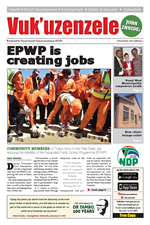
Translations
EPWP is creating jobs
EPWP is creating jobs JoyCommunity Members of Thaba Nchu in the Free State, are enjoying the benefits of the Expanded Public Works Programme (EPWP).
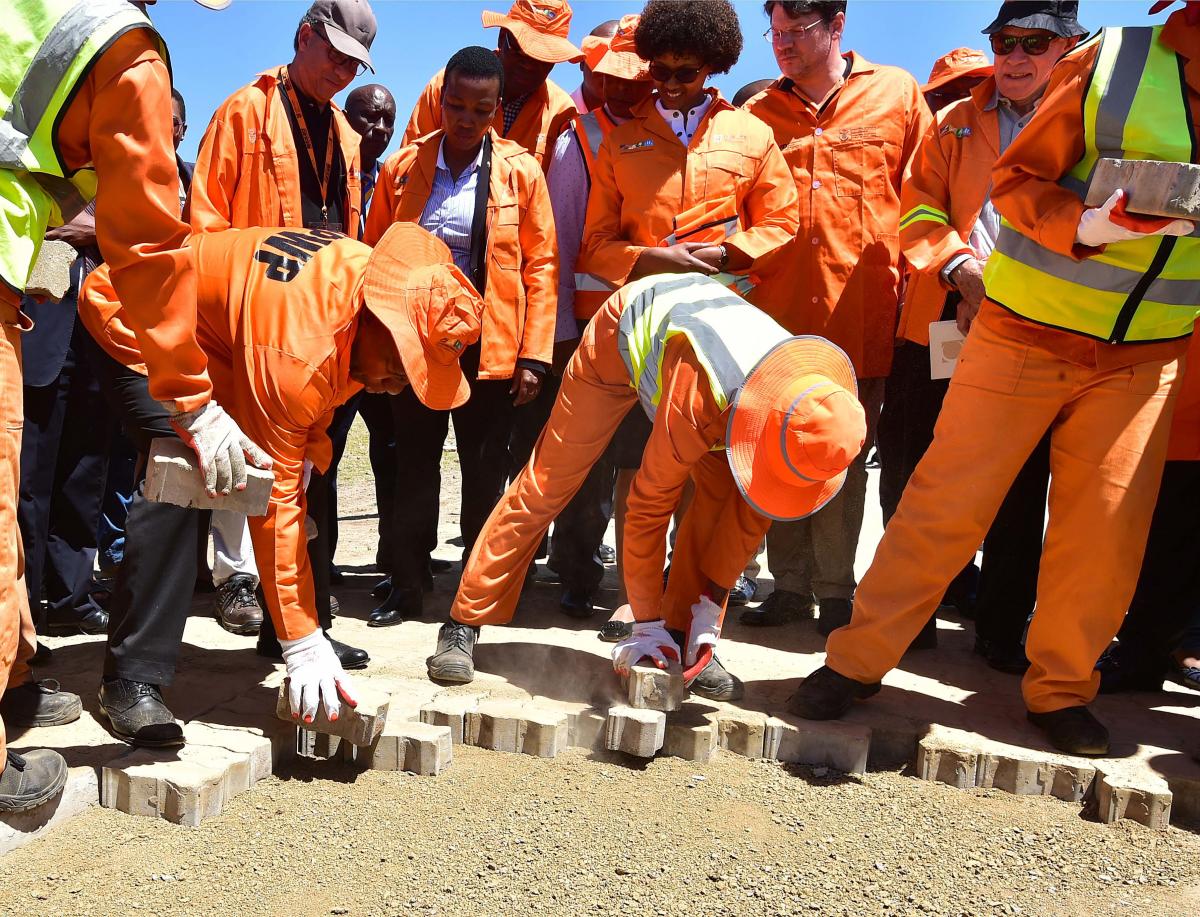 Deputy President Cyril Ramaphosa says he is impressed with how the EPWP is improving the lives of these residents.
Deputy President Cyril Ramaphosa says he is impressed with how the EPWP is improving the lives of these residents.
The skills being imparted to local community members, as well as the stipend they earn, are helping them live a better life.
“Government is touching the lives of our people, and we are very impressed with that,” he said when addressing residents after visiting various EPWP projects in the province.
The Deputy President confirmed that the EPWP is one of government’s flagship programmes.
It is aimed at providing income relief through temporary work for the unemployed, and provides an important avenue for labour absorption and income transfers to poor households, in the short- to medium-term.
Accompanied by cabinet ministers, the Deputy President visited the Thaba Nchu Bus Route Project and the Thaba Nchu Ratlou Complex.
The Deputy President and the Minister of Labour, Mildred Oliphant, were briefed about the construction of a road where EPWP participants are laying bricks.
“This is what our people need − to be taught [how to do it] and thereafter they can do it on their own,” he said.
Project Manager Feziwe Mbube said the project has employed 56 people and that all of them are from the local community.
“Most of them came here with no experience, they learnt how to pave while working here,” she said.
The project started in July and it is hoped that it will be completed by December.
The EPWP employs workers – government, contractors or non-governmental organisations – on a temporary or ongoing basis, under the Ministerial Conditions of Employment or learnership employment conditions.
Since the 2012/13 financial year, the EPWP has created 4 185 426 work opportunities, and has a target of an additional 4 205 730 by the end of 2018/19.
“In our country we have [many] people who are not working. Our government is doing something through the EPWP to help our people… People are now able to put food on the table for their families,” the Deputy President said.
He encouraged EPWP participants to continue to work hard so that they can gain skills and reduce poverty in their communities.
Oratile Rasebonang (38), one of the EPWP participants, said he started working on the project in August and that he is happy that he can now pave bricks.
“When I started working on the project I knew nothing about paving, but now I can do it without any difficulties,” he said.
Participants in the project receive a stipend of R2 070 a month.
EPWP participant Vincent Xhashembe said that apart from the experience he is getting, he is happy to be receiving a stipend that enables him to support his family.
“I am happy that I am now able to support my family. I am happy with what our government is doing for us,” he said.
The Deputy President also visited a complex where buildings are being renovated by EPWP participants from the local community.
Special needs school opens in Gauteng
Special needs school opens in Gauteng JoyThe Gauteng Government is ensuring that learners with special needs can grow up to become productive members of society.
 Gauteng Premier David Makhura recently opened the Nokuthula Centre and Special Needs School in Johannesburg.
Gauteng Premier David Makhura recently opened the Nokuthula Centre and Special Needs School in Johannesburg.
The multi-million rand state-of-the-art school forms part of 120 schools in Gauteng that cater for learners with special needs.
“We remain steely in our determination to build a quality public education system that benefits all, regardless of their circumstances. We are promoting inclusive education,” said Premier Makhura during the opening of the school.
“Today we are making it possible for an additional 560 learners with special educational needs to access quality education and thus stand a better chance of participating fully in economic and social life,” said Premier Makhura.
The province has thus far refurbished 13 schools successfully, converting them into proper special schools. Five more schools will be refurbished in due course.
“In all of our special schools we have exit plans for our learners. In terms of these plans we are working with parents, educators and learners to develop a post-school career path for individual learners, taking into account their unique circumstances,” Premier Makhura said.
He added that some of the learners can be accommodated within the province’s flagship youth empowerment initiative, Tshepo 1 Million.
The province is using the programme to break down barriers for young people to access decent employment, skills development and entrepreneurial opportunities.
“The work we are doing to improve the quality of education offered to learners with special needs forms part of the specific interventions we are making to improve education outcomes in our province.
“These interventions include harnessing Information and Communications Technology (ICT) to provide smart schools and classrooms of the future, ensuring universal access to Grade R, expanding the post-matric bursary scheme, establishing schools of specialisation and ensuring that the performance gap between learners from fee-paying and no-fee paying schools is narrowed,” Premier Makhura said.
Focus on crime against children
Premier Makhura is perturbed and angered by the sexual harassment, abuse, molestation and rape of girls in schools and wants the provincial police commissioner to focus on crimes against these girls.
“I want to send a strong message to those involved that we are coming for them. We shall remove them from the education system and society by ensuring that they are prosecuted and sent to jail. They have hit us where it hurts most,” Premier Makhura said.
He added that school governing bodies must hold all principals accountable for what happens in their schools.
Empowering the country’s most vulnerable
Empowering the country’s most vulnerable JoyEvery year, between November 3 and December 3, South Africa puts the spotlight on the rights of persons with disabilities through Disability Rights Awareness Month (DRAM) campaign.
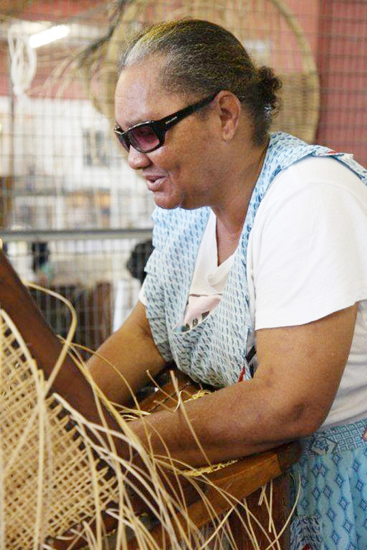 This year, DRAM campaign will be guided by the theme, “Strengthening Self-Representation: Young people building on the legacy of OR Tambo and Friday Mavuso towards sustainable and resilient society for all.”
This year, DRAM campaign will be guided by the theme, “Strengthening Self-Representation: Young people building on the legacy of OR Tambo and Friday Mavuso towards sustainable and resilient society for all.”
The month provides us, as a country, with an opportunity to reflect on progress attained in upholding the rights of persons with disabilities. The month also provides us with an opportunity to mobilise society in joining the struggle towards full liberation and empowerment of persons with disabilities, including the youth.
The National Development Plan recognises that disability must be integrated into all facets of planning. Bringing people living with disabilities fully on board is considered one of the enabling milestones towards 2030. Therefore it is important for the society to understand that all barriers (physical, economic, policy and attitudes) against people with disabilities should be removed. This will give people living with disabilities a chance to improve both their individual situations and also contribute towards the attainment of the national objectives and plans.
DRAM 2017 provides us with an opportunity to look back at progress made in the 20 years since the first disability rights policy in the new South Africa was released. This strategy is known as the 1997 Integrated National Disability Strategy. It is also 10 years since South Africa ratified the United Nations Convention on the Rights of Persons with Disabilities in 2007.
We have undertaken as country among others that skilled, technical, professional and managerial posts must reflect the country’s racial, gender and disability makeup. But despite the many efforts that we have made thus far regarding empowering people with disabilities, our 2016-17 employment equity reports still show that persons with disabilities are grossly underrepresented at 1.2 percent at top management levels.
Therefore in this month we highlight the situation of the persons with disabilities in its totality; the challenges they face; the opportunities they have and still need, and the contribution they make to this country. It is therefore important to understand the demand that the situation of people living with disabilities presents on us as the society and oblige in meeting them without hesitancy; to love, support and embrace them as very integral part of our very being and of the success of this country.
Perhaps most importantly, DRAM 2017 takes place during the Year of OR Tambo, a strategist, a liberator, a global icon and a selfless leader who dedicated his life to the liberation of his people. OR Tambo did not retire when he became disabled following a stroke in 1989, but insisted on continuing with his roles as expected and found new and different ways of communicating and contributing despite his ill-health.
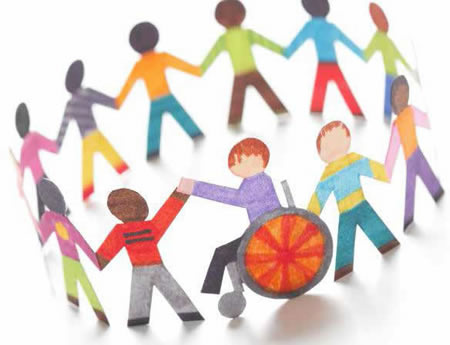 He went on to accept nomination to become the Chancellor of the University of Fort Hare in 1991. DRAM 2017 will focus on the role that OR Tambo and other stalwarts with disabilities played and continue to play in liberating South Africans with disabilities. It will celebrate the lives of stalwarts such as the late Friday Mavuso, who led the establishment of the disability rights movement of South Africa in the eighties, together with heroes and heroines such as Maria Rantho, William Rowland, Thulani Tshabalala, Jerry Nkeli, Phindi Mavuso, Kathy Jagoe and many others.
He went on to accept nomination to become the Chancellor of the University of Fort Hare in 1991. DRAM 2017 will focus on the role that OR Tambo and other stalwarts with disabilities played and continue to play in liberating South Africans with disabilities. It will celebrate the lives of stalwarts such as the late Friday Mavuso, who led the establishment of the disability rights movement of South Africa in the eighties, together with heroes and heroines such as Maria Rantho, William Rowland, Thulani Tshabalala, Jerry Nkeli, Phindi Mavuso, Kathy Jagoe and many others.
It will support young persons with and without disabilities to form a social pact as volunteers in building an inclusive South Africa free from discrimination and oppression by 2030 and beyond. This country is and should continue to be a place which affords children and adults from all walks of life, both abled and disabled, opportunity to play, learn, work and worship together freely despite their physical differences.
Together let us continue to build a coherent, united society and move South Africa forward.
For more information on the DRAM focus areas contact DisabilityRights@dsd.gov.za or follow @Disability_SA (#DisabilityRightsSA) on t
Over 200 families get access to health
Over 200 families get access to health JoyThe Ethekwini Municipality is ensuring that the city’s poor have access to healthcare.
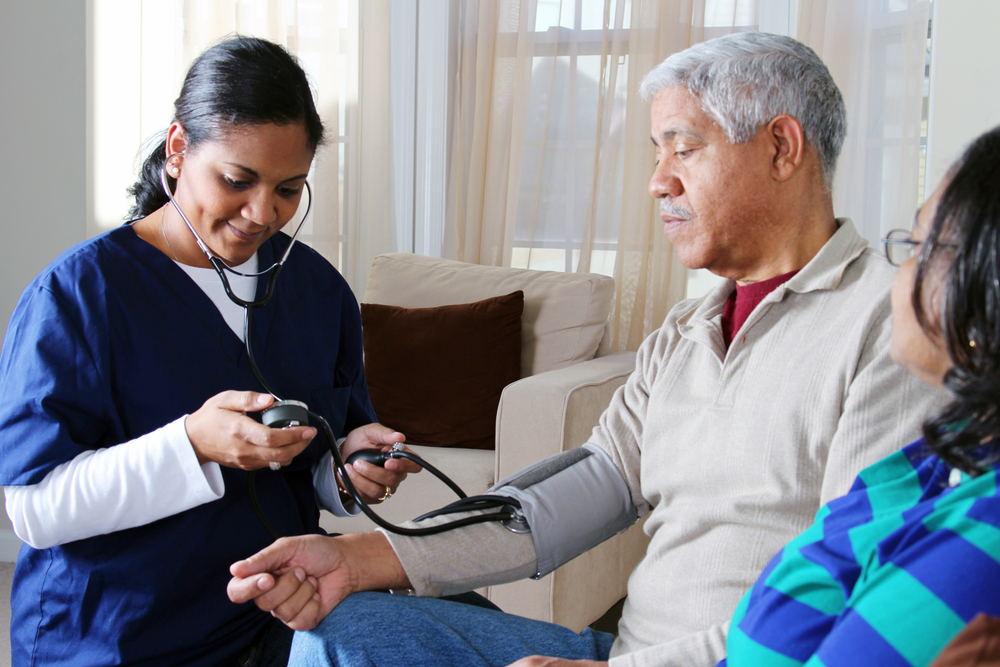 To ensure that homeless people in eThekwini Municipality have access to healthcare services, a shipping container has been transformed into a four-room clinic at the Dalton Beer Hall.
To ensure that homeless people in eThekwini Municipality have access to healthcare services, a shipping container has been transformed into a four-room clinic at the Dalton Beer Hall.
This intervention is the result of a partnership between the municipality, private partners and non-government organisations (NGOs).
The clinic will service over 200 families living in informal dwellings in and around the Beer Hall and will offer basic healthcare, tuberculosis and HIV support.
Speaking at the launch of the Usizo Lwethu Clinic and Drop-in Centre recently, South Durban Basin Area-Based Management senior manager Eurakha Singh said that two years of strategic planning to address health issues and social challenges in the area were beginning to bear fruit.
“This is a great example of a working partnership between the city and the non-profit sector,” said Singh.
The container and conversion costs were sponsored by local business, Container World. Its donation means that people can be treated in a clean, safe and private environment.
Medical Students from the University of KwaZulu-Natal School of Medicine will be joining forces with clinic staff to provide daily healthcare services.
The municipality has provided fencing and temporary toilets. It has also committed to rehabilitating the abandoned toilet facilities and creating a drop-in centre for social services which will be run by the municipality’s Safer Cities Unit. Umbilo Business Forum has committed to converting plots of vacant land surrounding the area into a vegetable garden.
Ward councillor Mpumelelo Zuma said the clinic will bring positive change to the community and urged other businesses and NGOs to join forces with the city to help restore the area to its former glory.
*Jessie Singh works for the eThekwini Municipality.
Rand West Municipality empowers youth
Rand West Municipality empowers youth JoyA Gauteng municipality is providing deserving learners with access to high quality and relevant higher education and training.
The Rand West City Local Municipality is continuing efforts to change people’s lives, this time through bursary opportunities for young people in Randfontein and Westonaria.
Initiated back in 2006, the bursary scheme has already benefited scores of young people in the region. Prospective students are urged to apply now for funding for the 2018 academic year.
Applications opened on 12 September and will close on 30 November. The bursary covers tuition fees and study materials.
Rand West City Local Municipality spokesperson Tshidiso Tlharipe said the scheme affords young people a brighter future.
“Our aim is to increase the literacy levels of the people within the Rand West City Local Municipality and to contribute towards the economy of the region," said Tlharipe.
The bursary covers the necessities of the learners.
“We pay for their accommodation and institution fees and ensure that they are able to get employment post their tertiary qualification,” said Tlharipe.
For the 2017 academic year, the municipality awarded 125 bursaries worth R3.6 million; 52 of the students were able to complete their tertiary education through the scheme.
Twenty-three have already found employment,while others were able to find learnerships and internships in various sectors.
The scheme is open to those who wish to study in the academic disciplines of engineering, medical and health sciences, commercial and financial sciences, as well as legal and humanities.
Applicants must be South African citizens and must live in the Rand West City jurisdiction or have a parent who lives in the jurisdiction. They must pass matric with a university exemption or an average of 70 per cent and must be accepted at a university of technology or any other university, with the intention of studying full-time.
Students who benefit from the scheme are not obliged to work for the municipality after completing their studies.
“Although young people are not obliged to work for the municipality, our doors will be open to them where possible,” said Tlharipe.
For more information contact the Rand West City Local Municipality: 011 411 0083/4
Community gym gets everyone healthy
Community gym gets everyone healthy JoyPolokwane Municipality’s open gym initiative has had a positive impact on residents.
Getting into shape has never been as easy for the community of Solomondale in Limpopo, thanks to an open gym built by the Polokwane Municipality. Situated at a local park, the gym is open to people for recreation, sport and leisure purposes.
The municipality’s Ndavhe Ramakuela is pleased that the facility is being used. “Physical exercise brings overall happiness to an individual and this translates to healthier residents. The positive health benefits at Solomondale and Seshego will be a good motivating factor to establish more gyms in the future,” he said.
Elderly residents like Maria Ramotlhake (78) are seeing the benefits of using the gym.
“I was sickly three years ago and I struggled to even lift my hands. I decided to try exercise since the open gym was nearby. I am so happy now because my health has improved,” said Ramotlhake.
Elisa Sefoko (70) jubilantly said she used to visit the local clinic regularly with all sorts of ailments. Things changed when she started using the gym.
“This gym is now my pill as I no longer rely on medication only for good health. I come here every morning to exercise,” she said with excitement.
Free traffic flow on the M1 highway
Free traffic flow on the M1 highway JoyRoutine Traffic jams will now be a thing of the past for motorists using the M1 highway in Johannesburg.
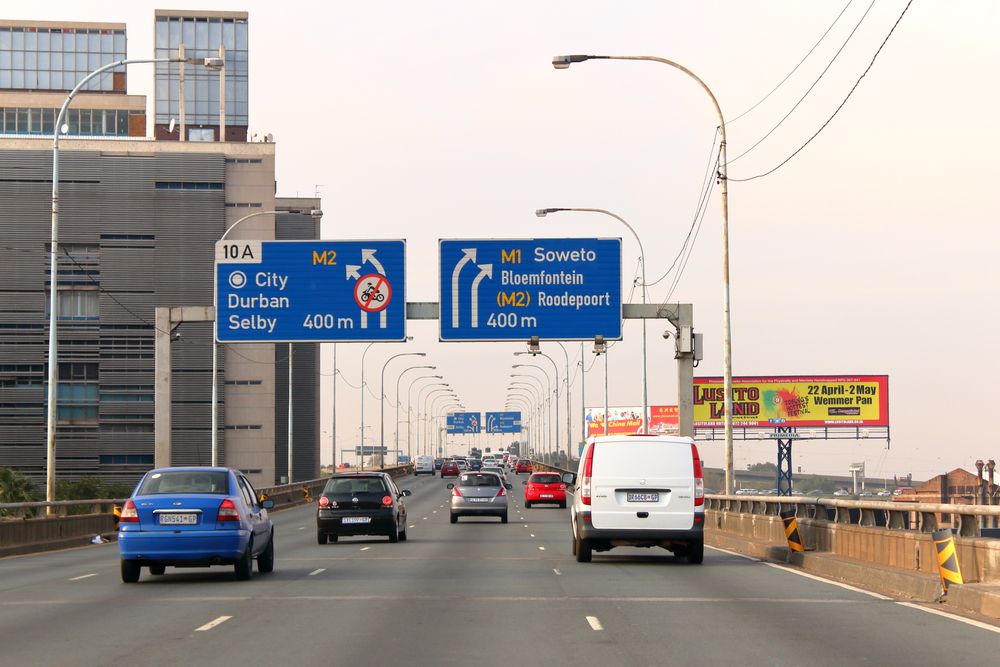 Upgrades to the M1 highway’s Oxford and Federation bridges in Parktown, Johannesburg, have been completed.
Upgrades to the M1 highway’s Oxford and Federation bridges in Parktown, Johannesburg, have been completed.
Three northbound and three southbound lanes have reopened.
The project, undertaken by the Johannesburg Roads Agency (JRA) in 2015, cost R140 million and will result in the free flow of traffic.
Speaking at the reopening of the highway, City of Johannesburg Mayor, Herman Mashaba, said that the city is thrilled for motorists.
“I would like to thank commuters for their patience. Many had to adjust their travel times to accommodate traffic deviations and road closures.
“One can only imagine the ease of traffic flow going forward. This is really a milestone for us.”
The mayor, however, urged people to use the public transport system to prevent further congestion on Johannesburg's roads.
JRA operations manager, Esther Schmidt, echoed Mashaba’s sentiments and thanked motorists for their patience.
Nine SMMEs and 67 local labourers were employed during the project, thus boosting employment in the region.
Motorist Glen Dlamini, who uses the M1 regularly, said that travelling to work will now be a breeze for him.
“Although one had to sit in traffic and get to work late during the construction stages, it was for the greater good and I, for one, saw the bigger picture behind the upgrades,” said Dlamini.
New clinic brings relief
New clinic brings relief lebangA newly-built clinic in Soshanguve is expected to provide health services to an increased number of patients.
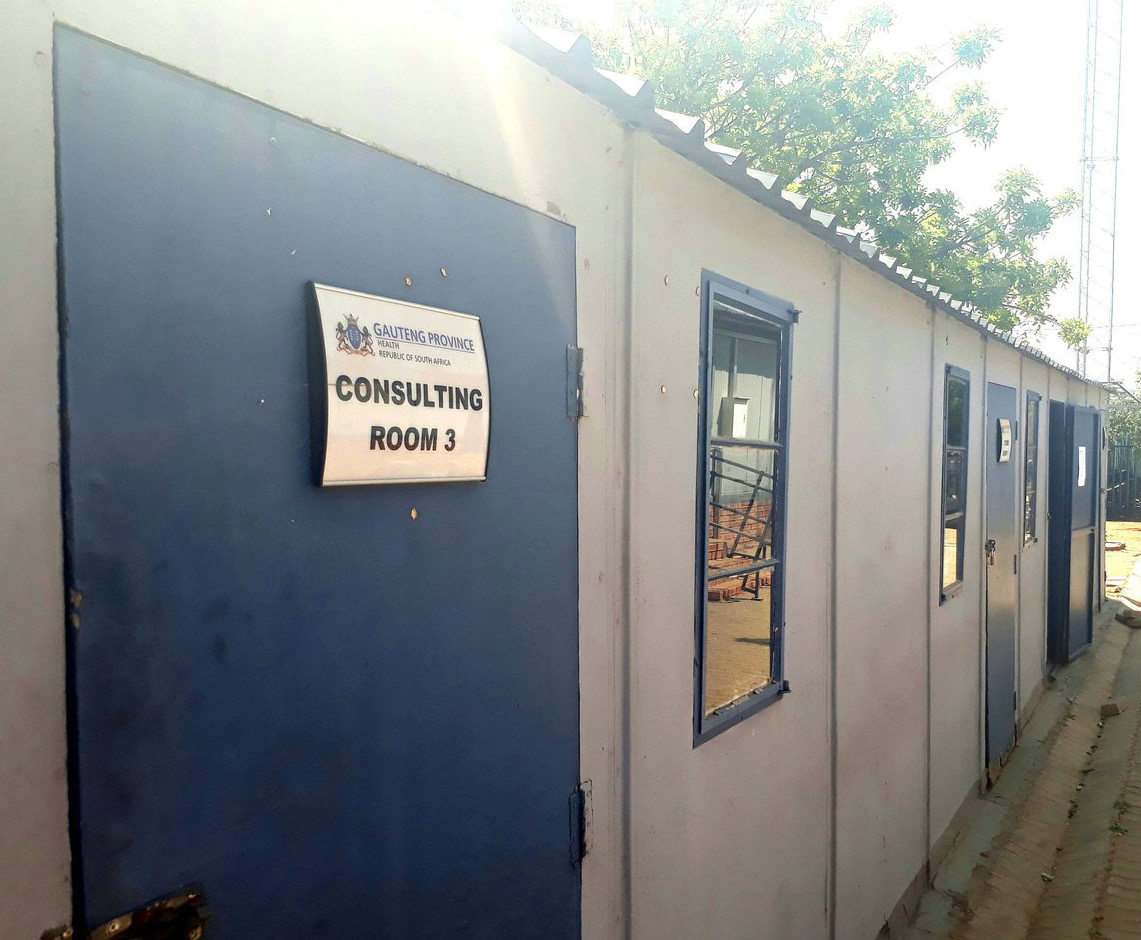 Gauteng Health MEC, Dr Gwen Ramokgopa, and City of Tshwane Mayor, Solly Msimanga, officially opened the newly-built Soshanguve Block JJ Clinic in Tshwane recently.
Gauteng Health MEC, Dr Gwen Ramokgopa, and City of Tshwane Mayor, Solly Msimanga, officially opened the newly-built Soshanguve Block JJ Clinic in Tshwane recently.
The clinic, which is expected to improve health care services in the area, is situated in ward 11.
The R29 million state-of-the-art clinic boasts nurses, doctors, psychologists and therapists, among other professionals. The clinic is also spacious and user-friendly, particularly for the elderly and people with disabilities.
Speaking at the launch of the clinic, MEC Ramokgopa said that the clinic replaces the smaller temporary structures which were previously used to provide primary health care.
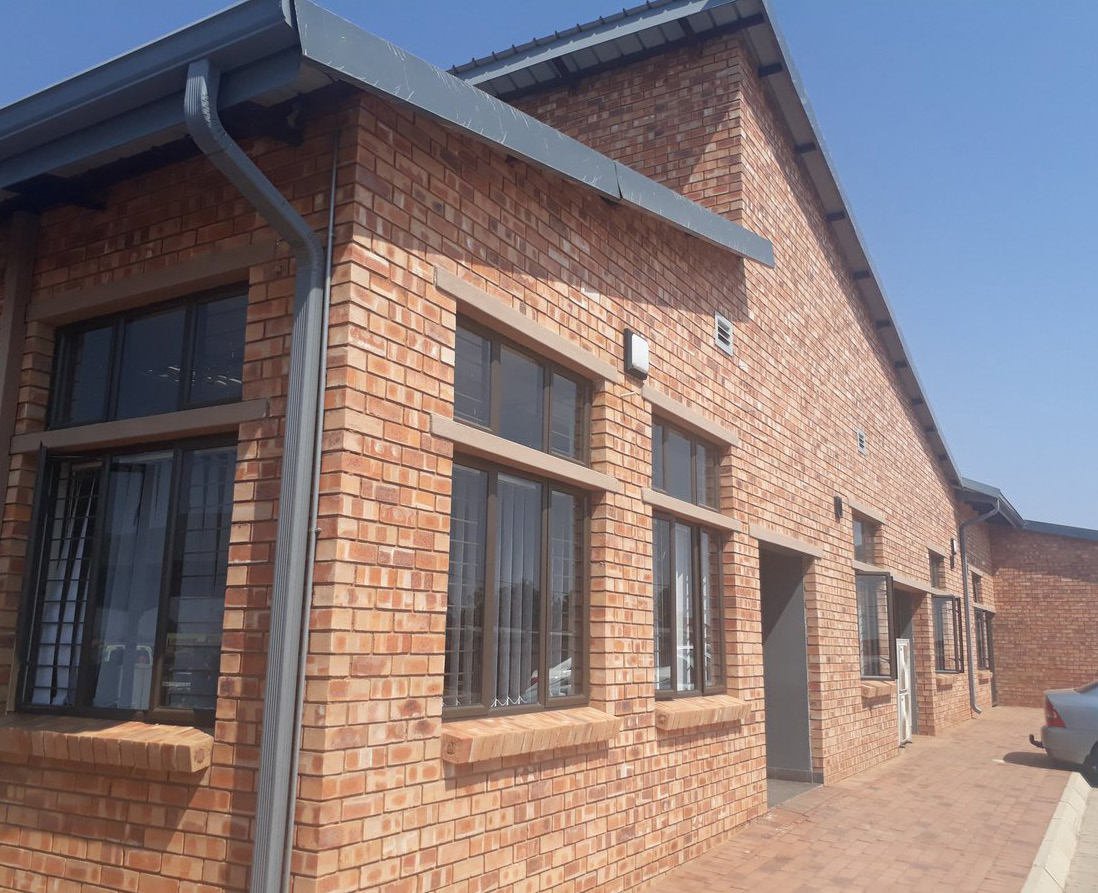 “We are proud to be unveiling this facility in this particular region and we hope that it will help ease the pressures of long queues for patients seeking health care services.
“We are proud to be unveiling this facility in this particular region and we hope that it will help ease the pressures of long queues for patients seeking health care services.
“We believe that the clinic will offer better health care for patients and I want to thank the staff for providing quality health services to the people at the old clinic, despite the difficult conditions faced,” she said.
A number of job opportunities were created for local community members during the building phase.
Mayor Msimanga said the facility should be celebrated as it will give people dignity.
“This has been a very long journey; we would like to thank everyone who was involved with this project. I would like to say to the people of Block JJ, do not destroy what you have in pursuit of other things you want.
“We are hoping that what started at the containers will be doubled in the formalised facility we now have,” said Msimanga.
Bold plan to tackle HIV at universities
Bold plan to tackle HIV at universities lebangAn HIV prevention pill will soon be available to university students as part of government’s measures to curb the spread of HIV/Aids.
 The Higher Education and Training HIV/Aids (HEAIDS) programme will introduce new pills next year that reduce the risk of contracting HIV.
The Higher Education and Training HIV/Aids (HEAIDS) programme will introduce new pills next year that reduce the risk of contracting HIV.
The pills will be introduced to university students. Although the pill reduces the risk of contracting HIV, it does not lower the risk of contracting other sexually transmitted diseases and infections.
HEAIDS is an initiative of the Department of Higher Education and Training that is undertaken by South African universities in co-operation with the South African College Principals Organisation.
HEAIDS Director, Dr Ramneek Ahluwalia, who was appointed by the Department of Higher Education and Training to speak on the matter, said the antiretroviral pill, Truvada, reduces the risk of contracting HIV by at least 90 per cent if taken daily.
“Pre-exposure prophylaxis (PrEP) has enormous potential to spare thousands of young South Africans from the HIV epidemic, but only if it is used properly, consistently and responsibly.
“We must work together to ensure that our young people take all possible preventative measures to ensure they remain HIV negative. They are the future of our country and we owe it to them to give them the tools they need to live long, healthy and productive lives,” said Dr Ahluwalia.
According to Dr Ahluwalia, the rate of transactional sex (sex for gifts) among students in higher education is very high‚ and condom uptake is low, thus making students good candidates for the roll out.
HIV-negative students at seven universities will be able to access the medication free of charge at 12 approved campus health clinics. The universities are Nelson Mandela University‚ Rhodes University‚ the University of Limpopo‚ University of the Free State‚ University of Venda‚ University of Zululand and the Vaal University of Technology.
Truvada was initially rolled out at pilot clinics across the country to targeted patients.
The results of the university roll out will be given to the Department of Health, and will provide information about whether there is a demand for such preventive treatment.
Cuban boost for rural health
Cuban boost for rural health vuyelwanA health co-operation agreement between South Africa and Cuba is helping to address South Africa’s shortage of rural doctors. 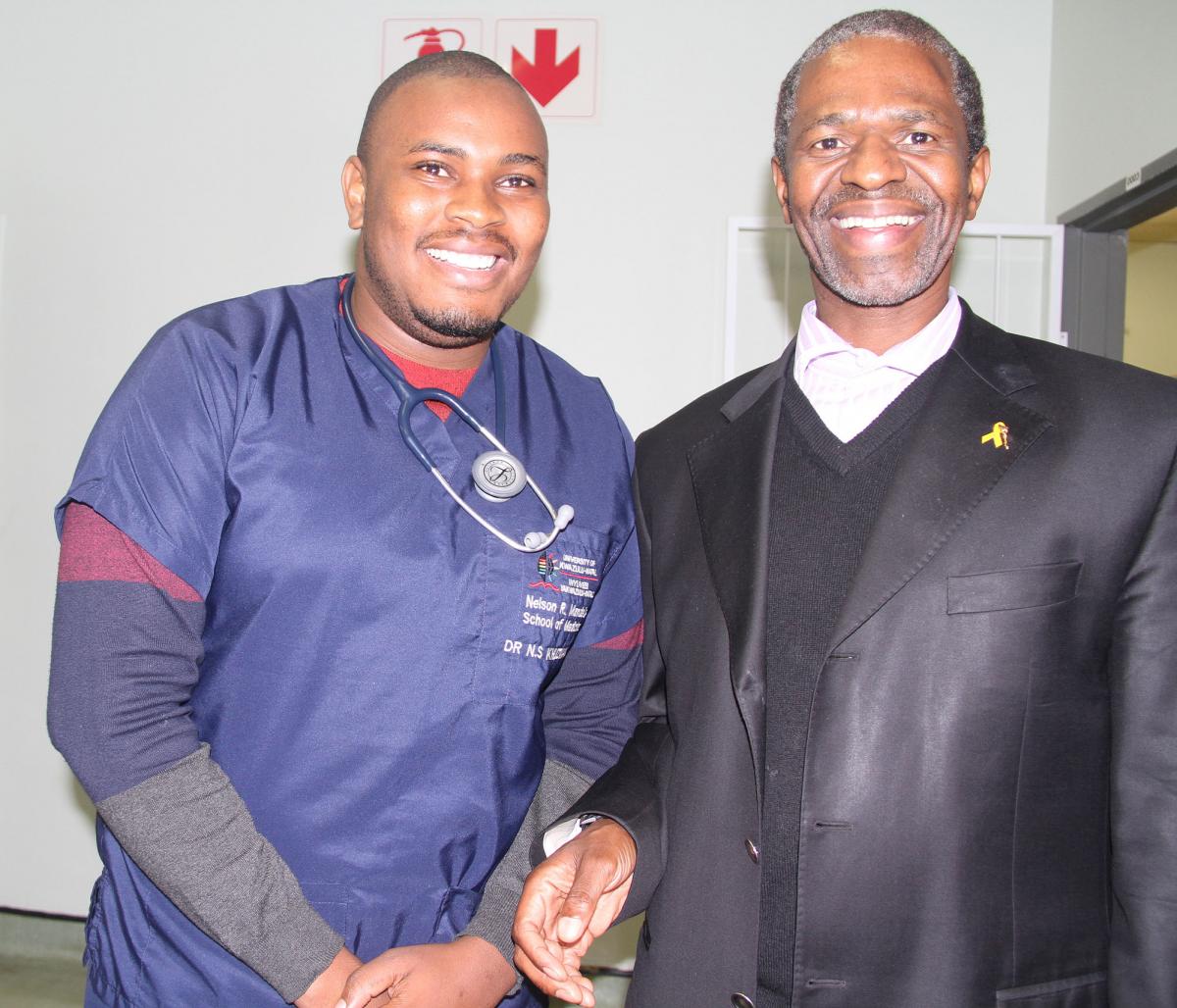
Nhlanhla Khuzwayo, from an impoverished home in Ozwathini, KwaZulu-Natal, stood very little chance of becoming a doctor. However, his life has changed thanks to the Nelson Mandela Fidel Castro Training Programme.
The medical training programme seeks to address the shortage of doctors in the country by sending young aspirant doctors from poor communities for medical training at a Cuban university. Since the inception of the programme in 1996, 590 doctors have qualified and are now working in the rural communities from where they come.
Khuzwayo (22) is currently studying medicine in Cuba, and is more than halfway towards realising his dream of becoming a doctor. He is among 302 medical students who are currently being trained in Cuba.
In his fourth year of studying, Khuzwayo was recently back in South Africa for a debriefing session with Health MEC Sibongiseni Dhlomo. He also spent two weeks getting practical experience at Appelsbosch Hospital in his home province.
“Studying to become a medical doctor is a great opportunity that I might not have had, had it not been for this programme. Studying in Cuba has made me realise how fortunate I’ve been to get this rare opportunity to study free of charge. I am very grateful to the provincial Department of Health,” he said.
Reflecting on the experience of doing his practicals at Appelsbosch, he said he initially felt apprehensive. “I was given my own consultation room and I thought I would sit and wait for the doctor. I was amazed when I was told that I’m the second doctor on call.”
He added that humility is a key part of being a doctor. “Respect everyone, because everyone respects a doctor.
“This programme is going to produce a large number of doctors. We are going to make a very big difference,” said Khuzwayo.
MEC Dhlomo said the success and impact of the partnership between South Africa and Cuba had drawn the attention of first world countries.
“The reason why governments in developing countries such as ours and the Angolans and many others hold Cuba in such high regard is because of the high quality of medical training that the Cubans offer.
“Their approach to healthcare is different in that it promotes disease prevention instead of focusing on cure, which is unsustainable.
“As a result, their health outcomes are excellent,” said MEC Dhlomo.
Rethink your drink – choose water
Rethink your drink – choose water vuyelwanGovernment wants citizens to make healthy choices when it comes to choosing their drink.
 The national Department of Health is encouraging South African citizens to consider making water a beverage of choice each day, as it is essential for health and the best way to quench thirst.
The national Department of Health is encouraging South African citizens to consider making water a beverage of choice each day, as it is essential for health and the best way to quench thirst.
The aim is to help citizens to drink water as a daily habit because it is generally good for everybody’s health. Choosing sugar-sweetened drinks as an alternative to drinking water, spikes the body’s daily kilojoule intake, degrades diet and leads to weight gain.
In its National Nutrition Week campaign, the department also highlighted non-communicable diseases such as type 2 diabetes, heart disease and dental decay.
The Director of Nutrition at the department, Rebone Ntsie, said the prevalence of obesity and non-communicable diseases in the country are alarming.
“The South African Demographic and Health Survey conducted in 2016 found that the prevalence of overweight was 13.3 percent among children of zero to five years of age. About 67.6 percent and 31.3 percent of South African women and men respectively are overweight and obese. These findings show that overweight and obesity among children and adults have increased from earlier surveys. Replacing sugary drinks with water can help,” said Ntsie.
“Besides keeping you hydrated, water helps with digestion, regulates your body temperature and lubricates your joints. Furthermore, tap water is cheaper than any other drink.”
The department said daily consumption of two or more sugary drinks has been found to increase the risk of developing diabetes by at least 24 percent compared to consuming less than one sugary drink per month.
According to Statistics South Africa, diabetes was the second leading underlying cause of death in the country in 2015, accounting for about 5.4 percent of deaths, and it is the leading cause of death in females, accounting for about 7.1 percent of deaths.
On average, commercially produced sugary drinks contain the following:
Amounts of sugar per 500 ml serving (two average-sized cups/glasses):
- Sweetened fizzy drinks: 13 – 17 teaspoons
- Energy drinks: 13½ to 15 teaspoons
- Fruit juice: 12 – 16 teaspoons
- Sweetened milk or yoghurt-based drinks: 7 – 13½ teaspoons
- Sweetened iced tea: 8 – 10½ teaspoons
- Sports drinks: 4½ - 12 teaspoons.
Speak out against domestic abuse
Speak out against domestic abuse vuyelwanA 16-day annual awareness campaign pulls out all the stops to empower South Africans to take a stand against the abuse of women and children. 
He fastened a tie around my neck then pushed my face into a bowl full of water so that I would suffocate. After a few seconds, he pulled my face out and slapped me.”
These are the heart-breaking words of domestic violence survivor Mara Glennie (65) from Johannesburg.
Glennie shared her story of how she survived domestic violence at the hands of her husband of 19 years.
“It was a 10-year journey through counselling, and friends who supported me, that got me to where I am today,” she said, adding that despite the eroding abuse she suffered, she is able to not only get up, get dressed and show up every day, but has reached out to others who have been victims of abuse.
Over the years, she was verbally and sexually abused but did not leave her husband because of misplaced loyalty and love. “I couldn’t tell my family what was happening behind closed doors as they deemed my marriage to be ‘perfect’.”
After years of abuse, the realisation that her husband was cheating on her and that her marriage was based on lies finally prompted her to leave. Her husband attempted to apologise to her, but became even more vicious when she rejected his apology.
He physically assaulted her and she reported the incident to the police.
After a few weeks, she filed for divorce and moved back to George in the Western Cape to be closer to her family.
“At that time, I needed to be surrounded by people who love me.”
She emphasised that in such situations victims really need the support of family members and friends.
With their help and support, she regained her confidence and returned to Johannesburg where she started TEARS, a non-profit organisation that provides support for rape and sexual abuse survivors.
From 25 November until 10 December, South Africa acknowledges 16 Days of Activism for No Violence Against Women and Children, which is also an international awareness campaign.
Glennie said through her non-profit organisation, she hopes to increase awareness about domestic violence and also assist victims of abuse.
“I feel fulfilled knowing that I am making a difference,” she said.
To report domestic violence call:
- SAPS Crime Stop on 08600 10 111
- The Department of Social Development 24-hour Command Centre: 0800 428 428 (toll-free) ñ callers can speak to a social worker for assistance and counselling.
*Dineo Mrali works for the Department of Justice and Constitutional Development.
What is domestic violence?
What is domestic violence? vuyelwanAccording to Matome Modiba, legal admin officer at the Department of Justice and Constitutional Development’s Gauteng Regional Office, domestic violence is any form of abuse, whether it is of a physical, sexual, emotional, psychological or economic nature.
This includes damage to property, stalking, entry into a person's property without their consent and any other abusive or controlling behaviour where such conduct causes harm or may cause harm to a person’s health, safety or well-being.
Modiba said if these forms of abuse are taking place, the victim can apply for a protection order which is a document issued by the court to prevent the abuser from committing further acts of domestic violence.
“People can seek protection from the person to whom they are married, whether by civil or customary rites. This includes your partner, whether of the same or opposite sex who lives or has lived together with you, even though you were not married to each other.
“If you feel that you are a victim of any act of domestic violence, approach the local Magistrate's Court and request assistance in bringing an application for a protection order.”
The clerk of the court will assist complainants to complete the necessary forms and a magistrate will determine whether to grant the order or not.
“In emergencies, this service is available 24 hours a day,” said Modiba.
Those wishing to report abuse should approach the court nearest to where they live or work.
“If you were forced to leave your place of residence as a result of the violence and are living elsewhere temporarily, you may approach the court closest to your temporary residence.”
The interim protection order must be served on the respondent as soon as possible.
“You cannot personally hand over the order to the respondent as this will not constitute proper service. In other words, handing over the interim protection order is the responsibility of someone in an official position, such as a police officer, sheriff or clerk of the court.”
He added that if the respondent breaches the protection order, a complaint must be lodged at the nearest police station. A warrant of arrest will be carried out if deemed necessary.
“Once arrested, the respondent will face criminal charges and be tried in a criminal court for breaching the protection order.”
Mine community uplifted
Mine community uplifted vuyelwanBetter quality education can be achieved if there is co-operation between government and the private sector.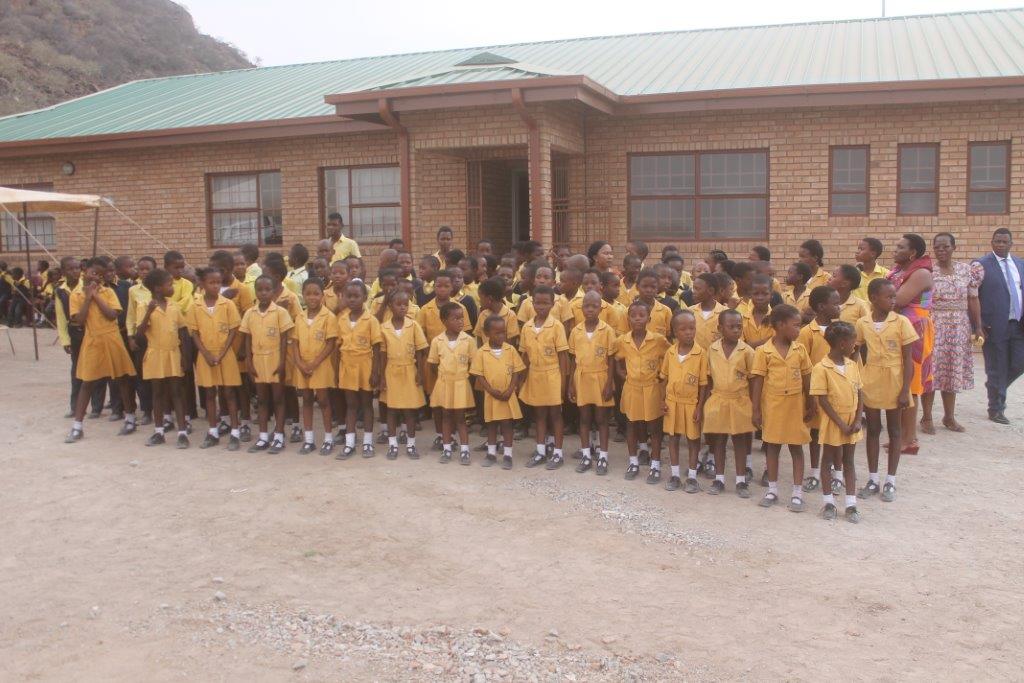
The community of Maruping village in Atok, Limpopo, are benefitting from a successful partnership between government and the private sector.
Bokoni Platinum Mine invested more than R8 million in community projects that aim to improve the lives of the people living close to the mine.
The projects include a refurbished administration block at Mahudu Primary School in Ga-Nkwana, an early childhood centre in Ga-Selepe and an access bridge in Ga-Manotwane.
Speaking at the official opening of the projects, Limpopo MEC for Education Ishmael Kgetjepe said the projects will go a long way towards improving the community.
“These donations by the mine are a gift born out of a realisation that education is the foundation of a successful and prosperous nation, like South Africa aspires to be. It is also born out of a realisation that without harnessing youth power through education, our gains which did not come about easily, can be easily reversed.”
Kgetjepe said the National Development Plan has premised most of its objectives on the delivery of world-class education for children.
“We have to work together to emphasise the importance of learning in contributing towards progress and development in our communities, particularly during these fast-changing times,” said MEC Kgetjepe.
The MEC also called on the community to look after the new facilities.
“There can be more of these, but we have to protect what we have from various forms of vandalism.”
Bokoni spokesperson, Kenneth Mbewe said implementing projects that promote the wellbeing of the community is in line with the mine’s plans.
“We also utilised local small businesses in order to grow the local economy and create jobs for local people. Of all the completed projects, each one was constructed by a local entrepreneur through our Small, Medium and micro-sized Enterprises development and support programme,” said Mbewe.
It’s never too late to improve yourself
It’s never too late to improve yourself vuyelwanAchieving matric is within reach of Western Cape adults who did not graduate high school. 
If you are an adult living in the Western Cape and are thinking of rewriting your matric, then 2018 might be your year.
The Western Cape Department of Education is calling on older people to register for their senior certificate.
Registration opened on 1 October and will close on 31 January 2018. The senior certificate will be written in May/June 2018.
The Western Cape Minister of Education Debbie Schäfer said learners may register online on the Western Cape Education Department website. She explained that the Senior Certificate examination is based on the National Senior Certificate (NSC) CAPS curriculum, which is the same course content covered by the Grade 12 learners in school.
In 2014, the Department of Basic Education revised requirements for the Senior Certificate (matric) qualification for adults to bring it in line with the CAPS curriculum. Candidates writing the amended Senior Certificate are exempt from school-based assessment (SBA), which means that the examination in the subject will constitute 100 per cent of the final mark.
She said adult learners have eight months to prepare for the exams and earn themselves an important school leaving certificate that can open many doors.
In 2017, almost 20 000 candidates registered to write the 2016 Senior Certificate in May/June.
“My office is inundated with queries from adult learners wishing to complete their Senior Certificate qualification. It is encouraging that so many adults now wish to obtain their school leaving certificate.”
Adult learners qualify to register for the Senior Certificate exam if they are 21 years or older and have one of the following:
- A General Education and Training Certificate for Adult Basic Education and Training; or
- A Grade 9 (Standard 7) school report, stating that they have passed Grade 9; or
- A recognised equivalent qualification obtained at NQF Level 1, which requires two official languages.
- In exceptional cases, youth who are 18 to 20 years old and who are not in school, can apply to the Head of Education in the province to write the exams if they too have one of the above.
The following learners also qualify to register for the Senior Certificate exams for adults:
- Adult learners who are 21 or older who have passed some subjects for a Senior Certificate or a NSC;
- Adult learners who need to complete a Senior Certificate qualification; and
- Adult learners who have an incomplete NSC, and whose SBA has expired.
Candidates who did the NSC in 2008, 2009, 2010 and 2011 may apply to register.
Applications with supporting documents and a motivation can be submitted to:
Head: Education
Western Cape Education Department
For attention: Mr A Clausen
Private Bag X9114
Cape Town, 8000 or hand delivered to the Examination Walk-in Centre, Grand Central Building, Cape Town.
Applicants can also apply on line by clicking on the following website: https://wcedonline.westerncape.gov.za/home/
Coega: A blueprint for economic development
Coega: A blueprint for economic development vuyelwanAn Eastern Cape industrial development zone is setting the pace in global competitiveness through world-class infrastructure, tax incentives, rebates and a duty-free zone. 
Located in the Nelson Mandela Bay Metropolitan Municipality, Coega – South Africa’s first and largest industrial development zone (IDZ) – is a world-class facility that ticks all the boxes when it comes to economic development and facilitating cross-border trade.
Coega IDZ is one of several efforts by government to create economic development and growth opportunities for the people of the Eastern Cape.
Developed and managed by the Coega Development Corporation (CDC), the Coega IDZ s aimed at driving local and foreign direct investments in export-oriented industries, positioning South Africa as the hub for Southern African trade.
The 11 000 hectares of land is divided into different zones and boasts power stations, road linkages, water and telecommunications, as well as a rail network.
According to Coega’s Business Development Manager, Vuyokazi Gwabeni, the value of private sector investment in 2016/17 was R6 996 billion.
Gwabeni said the CDC and the Nelson Mandela Bay Logistics Park has managed to attract 40 operational investors, of which 24 are South African companies.
At the end of the 2016/17 financial year, the CDC had created over 7 243 operational jobs within the Coega Special Economic Zone.
Creating jobs, growing the economy
Creating jobs, growing the economy vuyelwanThe Coega Industrial Development Zone (IDZ) has attracted investment from the chemical, logistics, automotive, services, agro processing and energy sectors.
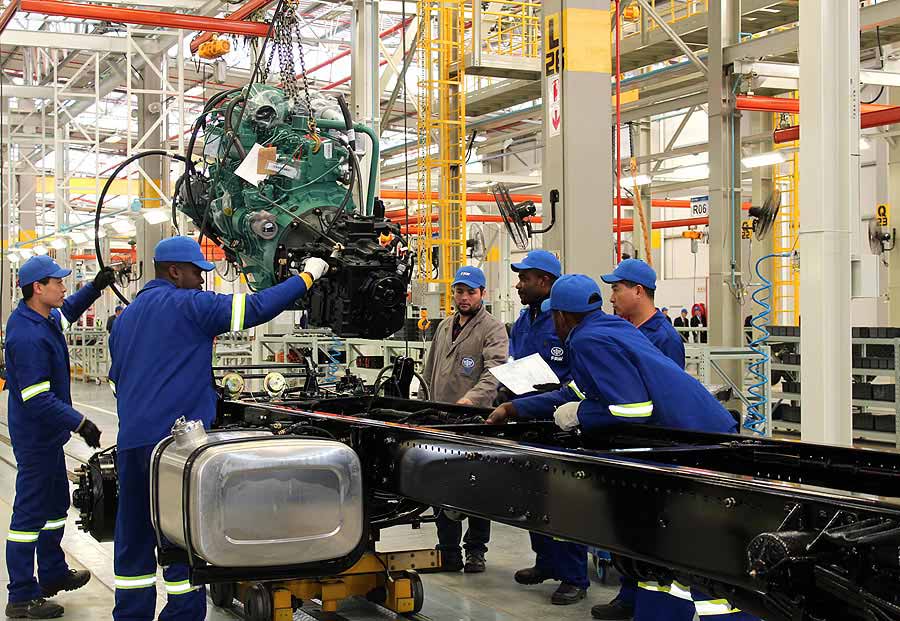 Vuk’uzenzele recently visited the IDZ and spoke to two investors. The first, Chinese company FAW, has been operating in the IDZ since 2014.
Vuk’uzenzele recently visited the IDZ and spoke to two investors. The first, Chinese company FAW, has been operating in the IDZ since 2014.
During the construction period, FAW South Africa created 300 work opportunities for the local community. Since starting its formal production, 240 permanent jobs were created.
About 90 per cent of the employees working at the plant are South African.
Louis Liu, Assistant CEO and Plant Manager (PE) of FAW Vehicle Manufacturer SA, who was speaking through a translator, said the main products produced at the plant range from medium to extra heavy vehicles, including tractors, tippers, cement mixers and construction vehicles.
“Our total investment for the project was 80 million US dollars and the accumulated production in the plant has been over 3 000 trucks. Our products have been accepted gradually by our customers in South Africa. They are also sold to other African countries,” Liu said.
The Discovery Health Medical Scheme's call centre is located in Zone 4. Walking through the open plan office, visitors can feel the energy of the young people at this centre.
The call centre, which started with a team of 50 call centre agents in July 2011, has grown to about 1 000 people.
“Our call centre makes up about 60 to 70 per cent of our workforce but we also have a collection team responsible for the collection of premiums, as well as a correspondent team, business teams and relationship teams,” said Discovery Service Executive Ernie van Staden.
Discovery’s capital investment in the facility was about R20 million.
Van Staden said the company is in the process of recruiting 140 people over the course of the next four months.
Coega Business Development Manager, Vuyokazi Gwabeni, said that in the 2016/17 financial year, Coega managed to achieve 38 percent SMME participation in the IDZ.
“We trained about 6 697 people and to date we have created 9 626 construction jobs in the IDZ. Since 1999, we have created 102 794 jobs and 92 583 people have been trained since inception,” she said.
Moreover, 16 investors were secured, with a total value of R11.685 billion in the 2016/17 financial year.
The state-owned entity also has a youth development programme for learners who were not successful in passing maths and science in Grade 12. A total of 48 learners completed the programme in 2016/2017 financial year.
Other programmes that are implemented and funded by the Coega Development Corporation include a driver training programme, a bursary scheme for chemical engineering post-graduates, an internship programme and a youth leadership development programme.
People with disabilities on the move
People with disabilities on the move vuyelwanThe eThekwini Municipality’s Dial-A-Ride initiative has made moving around the city much easier for people with disabilities.
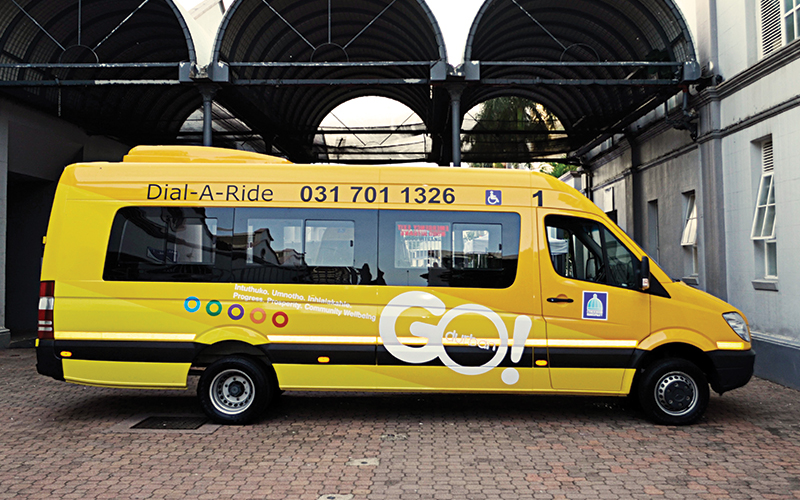 In a bid to ensure that people with disabilities make a meaningful contribution to the mainstream economy, the eThekwini Municipality has set aside R30 million for the operation and maintenance of specially-adapted buses.
In a bid to ensure that people with disabilities make a meaningful contribution to the mainstream economy, the eThekwini Municipality has set aside R30 million for the operation and maintenance of specially-adapted buses. 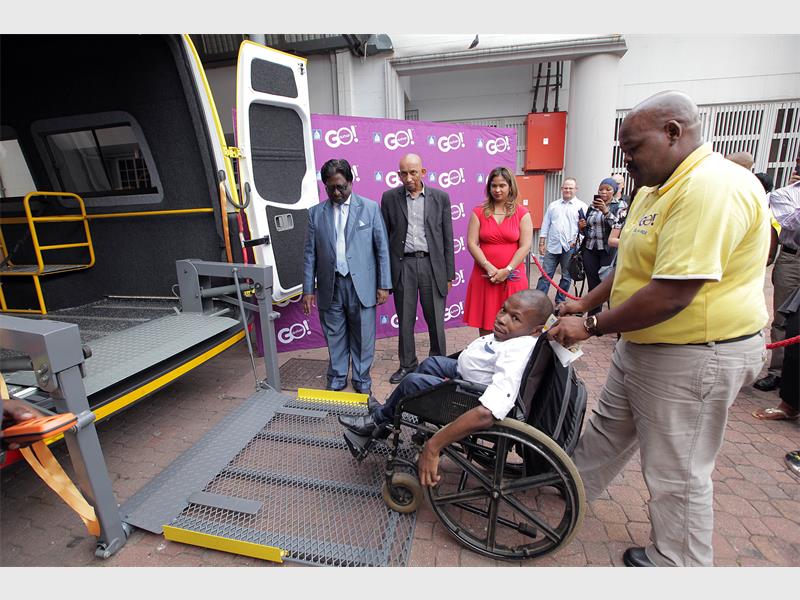
Through the Dial-A-Ride fleet initiative – introduced in 2011, commuters call a custom-designed bus to transport them to and from their workplace. The vehicles offer a demand-responsive public transport service for people with disabilities. About 4 000 people are registered for the service, with an average of
2 400 passengers a month.
The service is mainly used by wheelchair users and visually impaired people. eThekwini Transport Authority (ETA) Deputy Head for Public Transport, Mlungisi Wosiyana, said Dial-A-Ride was established to ease challenges faced by people with disabilities in accessing mainstream public transport services, like buses and taxis.
“The city introduced the service as an interim measure to address this challenge,” he said, adding that the door-to-door transport service has been prioritised for people who need to get to work. It is also used during off-peak times to transport people to clinics and for social and religious trips. The buses can be hired and used to transport people with disabilities to special events.
The buses, which can accommodate between five and seven wheelchairs and people on crutches in fixed seats, have SABS-approved hydraulic lifts to ensure safety. Ten of the fleet’s 12 vehicles are fully operational. The other two are only used when there is a demand. Because safety is of paramount importance, the vehicles’ roadworthiness is regularly checked and the drivers have been given vehicle and passenger care training.
One of the Dial-A-Ride commuters, Sboniso Dlamini, who uses the service to travel to work every day, said the buses are a relief. “The drivers help us get into the bus and fasten our seat belts. With public taxis, we are not given even the chance to sit because taxi drivers are always rushing to pick up at the next stop,” he said.
New R5 coin honours OR Tambo
New R5 coin honours OR Tambo vuyelwanA series of commemorative coins will help preserve South Africa’s heritage and pride.
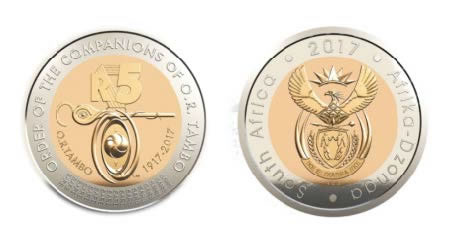 As the country celebrates the birth centenary of global icon OR Tambo, the South African Reserve Bank (SARB) has launched a new R5 circulation coin in his honour.
As the country celebrates the birth centenary of global icon OR Tambo, the South African Reserve Bank (SARB) has launched a new R5 circulation coin in his honour.
The coin – commemorating his birth – is part of a series of four new commemorative coins honouring the late struggle stalwart. The other three are collectable special edition coins and cannot be circulated.
Launched at the OR Tambo Cultural Precinct in Benoni, east of Johannesburg recently, the coins highlight the role that Tambo played in securing a democratic South Africa.
Speaking at the launch, SARB Governor, Lesetja Kganyago, said the coins honour the role played by Tambo in defeating apartheid.
“The coins which have been launched carry integrity and will carry the legacy of the late Oliver Tambo forward.
“Tambo’s conduct was one of integrity, trust and accountability and these matter a great deal to the SARB,” said Kganyago.
The back of the general circulation coin features a neck badge and walking stick, while the obverse depicts the national coat of arms, year of issue and ‘South Africa’ written in English and Xitsonga.
The collectable coins are not redeemable at banks and cannot be used to purchase products or services, while the general circulation coins are worth their face value only and should be used rather than preserved, to allow as many South Africans as possible to experience their beauty.
Oliver Tambo’s son, Dali Tambo, said that his family feels honoured by the move.
“The coins that the Reserve Bank and the South African Mint have produced are not only beautiful but are a platform of heritage. They are a platform of remembrance and an expression of the commitment to the values and ideals that my father stood for.
“My hope is that you will do many more and that we’ll soon see coins depicting Chris Hani and so many others who played a massive role. My father would have liked that,” said Tambo.
Oliver Tambo was born on 27 October 1917 and was an anti-apartheid activist who served as a president of the ANC. He died in 1993.
Learners talk money
Learners talk money vuyelwanAn annual speech competition supported by KwaZulu-Natal provincial treasury is aimed at developing good financial habits in youngsters’ formative years.
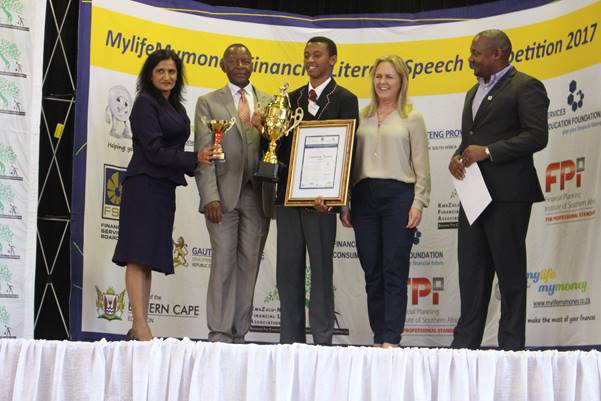 The future is bright for Lindokuhle Dlamini, a Grade 11 pupil at Little Flower Combined School in the Harry Gwala District Municipality of KwaZulu-Natal. Dlamini was the overall winner of the 2017 KwaZulu-Natal Financial Literacy Association (KZN FLA) Trust Grade 11 Speech Contest.
The future is bright for Lindokuhle Dlamini, a Grade 11 pupil at Little Flower Combined School in the Harry Gwala District Municipality of KwaZulu-Natal. Dlamini was the overall winner of the 2017 KwaZulu-Natal Financial Literacy Association (KZN FLA) Trust Grade 11 Speech Contest.
He beat 11 contestants and won a bursary that will help him study towards a degree in financial planning.
The learners who came second and third walked away with financial planning software and an investment of R5 000 and R1 000 respectively. In addition, the winners and their families will receive investment advice from a certified financial planner from the Financial Planning Institute.
All finalists received tablets with data and data projectors for their schools.
The objective of the annual speech contest is to equip young people with financial knowledge to help them build a solid foundation for their future. It aims to encourage careers in finance, entrepreneurship and financial planning in particular. This helps to promote financial literacy in schools and creates awareness of consumer rights and available support systems.
The KZN FLA Trust has been given a mandate by provincial treasury to run financial literacy programmes in the province and ensure that the residents of KwaZulu-Natal make rational financial decisions.
Dlamini expressed his joy at winning the competition.
“I always wondered what I was going to do after matric because I knew there was no one at home who could afford to pay for my tertiary education,” he said.
KZN FLA Trust Chairman, Artwell Hlengwa, said he would like to see more financial planning in all spheres of government.
“This is one way we want to build leaders of our country and produce responsible leaders who will be debt-free and make sound financial decisions,” he said.
Learners had to compete at class level up to district level. The speech contest is driven by relevant subject advisers and teachers at participating schools. The winner and first runner-up will proceed to the inter-provincial finals, which will be held in Gauteng.
Young scientists create solutions for today’s problems
Young scientists create solutions for today’s problems vuyelwanYoung scientists want to be actively involved creating solutions to some of society’s major problems through science, technology and innovation.
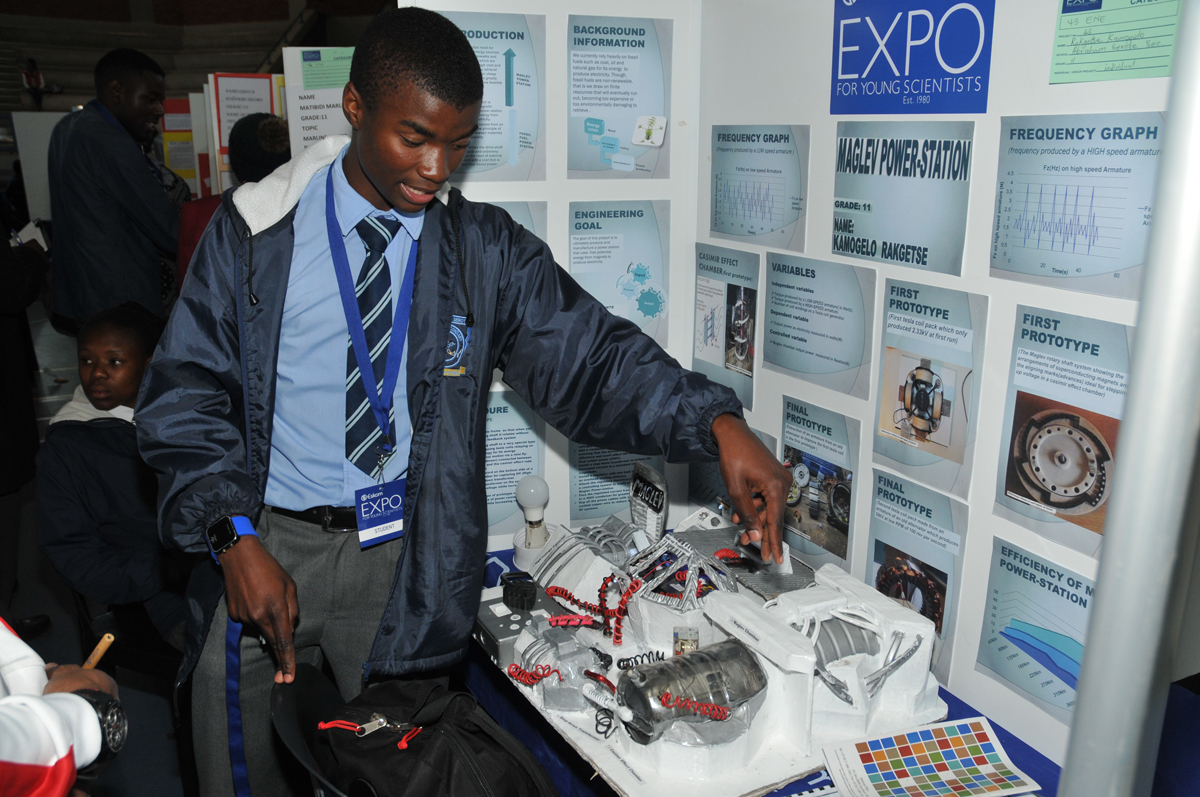 Kamogelo Rakgetse, a Grade 11 learner at Abraham Serote Secondary School in Tafelkop, Limpopo, has built a model of a magnetic power station that is able to produce electricity using free potential energy from magnets.
Kamogelo Rakgetse, a Grade 11 learner at Abraham Serote Secondary School in Tafelkop, Limpopo, has built a model of a magnetic power station that is able to produce electricity using free potential energy from magnets.
Rakgetse said his design, the Maglev Power Station (derived from ‘magnetic levitation’), originates from an application exploiting the principle of magnetic induction between materials with different permeability.
“The technology allows the drive shaft to levitate in a stable and safe way, without the need for external power and at a cost that is lower than fossil fuel-generated power,” he said.
His idea was sparked by the current over-reliance on fossil fuels such as coal and oil to produce electricity.
“These are finite resources that will eventually run out and become too expensive financially and environmentally to retrieve. I want to offer an alternative and eco-friendly power source,” he said.
Caroline Boshoff is a Grade 9 pupil at the Port Elizabeth-based Cape Recife School for learners with special needs. She has epilepsy which means she struggles with her school work and finds it difficult to read and write. Despite this, Boshoff loves science and that her research can be done practically rather than theoretically. She has created a programme to establish the learning difficulties of children with disabilities and develop tools to help them.
“I believe that every child can be successful. We just need the right foundation and the right opportunities,” she said.
Boshoff conducted a survey among learners from economically privileged and underprivileged groups, and those living with disabilities. Her findings showed that children from underprivileged backgrounds, and especially those with disabilities, struggled and took longer to reach their developmental milestones.
Her programme is called Sakha Isizwe Ngemfundo (building the nation through education) and it includes amongst other tools (all in English, Afrikaans and isiXhosa) a workbook for the children, a parent/teacher instruction manual, an educational games CD and a range of educational toys.
Boshoff and Rakgetse were amongst the 611 finalists of the Eskom Expo International Science Fair held recently.
The Minister of Science and Technology, Naledi Pandor, said at the event: “You all remind me of the late OR Tambo, who would’ve celebrated his 100th birthday this year. As an avid student and teacher of mathematics and science, Tambo would’ve been proud today. You demonstrate that our nation can and will be a great achiever in science and technology.”
DST-NRF Internship Programme 2018/19
DST-NRF Internship Programme 2018/19 JoyThe National Research Foundation (NRF) is responsible for the management of the DST-NRF Internship Programme in which unemployed Science, Engineering and Technology (SET) graduates and postgraduates (including those in Social Sciences and Humanities) are offered an opportunity to acquire practical work experience through mentoring and exposure to a research environment. This opportunity is also offered to those unemployed graduates and postgraduates who are interested in research management; research support and administration through placement at research offi ces in public higher education institutions and research agencies. Applications are invited from candidates who are interested in acquiring work experience in the areas of specialisation or disciplines in the provinces stated below:
| Province | Areas of Specialisation/ Disciplines (Choose 1 discipline per province up to a maximum of 3 in order of preference |
| Eastern Cape | Agricultural Economics • Agricultural Management • Agriculture • Analytical Chemistry • Animal Production • Anthropology • Biochemistry • Biology • Biotechnology • Botany • Chemistry • Communication & Media Studies • Communication Technologies • Development Studies • Ecology • Ecology & Environmental Science • Education • Electronic Engineering • Environmental Studies • Fisheries • Food Sciences & Technology • Fresh Water Biology & Limnology • Health Informatics • Health Promotion & Disease Prevention • Health Systems Research • Industrial Psychology & Sociology • Information Systems • Inorganic Chemistry • Languages & Literature • Linguistics • Management • Marine Biology • Mathematics • Molecular & Cell Biology • Nursing Science • Obstetrics & Maternal Health • Organic Chemistry • Physical Chemistry • Physics • Physiology • Political Sciences • Political Sciences & Public Policy • Public Health • Public Management & Administration • Quality Management • R & D Psychology • Research Management, Research Support & Administration • Science & Technology • Social Science • Social Work • Sociology • Soil & Water Sciences • Sports & Recreational Arts • Zoology |
| Free State | Agricultural Economics • Agriculture • Animal Diseases • Architecture • Biotechnology • Botany • Chemistry • Communication & Media Studies • Cultural Studies • Development Studies • Ecology • Ecology & Environmental Science • Education • Food Sciences & Technology • Forest Science • Genetics • Human Geography • Immunology • Industrial Psychology & Sociology • Infectious Diseases • Inorganic Chemistry • Languages & Literature • Linguistics • Mathematics • Medical Virology • Microbiology • Musicology • Philosophy • Physical Chemistry • Physical Geography • Plant Production • Political Sciences & Public Policy • Polymer Science • Psychology • Research Management, Research Support & Administration • Sociology • Soil & Water Sciences • Sustainable Development • Town & Regional Planning |
| Gauteng | Aerospace & Aeronautical Engineering • Agricultural Economics • Agricultural Engineering • Agricultural Sciences • Applied Mathematics • Analytical Chemistry • Anatomical Sciences • Animal Production • Animal Science • Archaeology • Artifi cial Intelligence • Astronomy • Atomic, Molecular & Nuclear Physics • Biochemistry • Bio-engineering • Biological Sciences • Biology • Biomedical Technology • Biometrics • Biostatistics • Biotechnology • Botany • Chemical Engineering • Chemical Pathology • Chemistry • Chemistry Sciences Engineering • Computer Engineering • Computer Programming • Computer Science • Computer Software • Communication & Media Studies • Construction Industry & Building • Development Studies • Ecology • Ecology & Environmental Science • Education • Electrical Engineering • Electronic Engineering • Embryology & Fetal Development • Engineering Management • Environmental Health • Environmental Studies • Epidemiology • Fine Art • Food Science & Technology • Food Technology • Forensic Sciences • Forest Science • Fresh Water Biology & Limnology • Genetics • Geographic Information System • Geology • Geophysics • Haematology • Health Informatics • Health Promotion & Disease Prevention • Health Systems Research • Horticulture • Immunology • Industrial Engineering • Industrial Psychology & Sociology • Information & Computer Sciences • Information & Library Science • Information Management • Information Systems • Information Systems & Technologies • Information Technology • International Relations • IT-Graphic Design • Knowledge Management (Records Administration) • Languages & Literature • Management • Material Sciences & Technologies • Mathematics • Mechanical Engineering • Medical Virology • Mental Health & Substance Abuse • Metallurgical Engineering • Microbiology • Molecular & Cell Biology • Morphology • Neuroscience • Nursing Science • Orthopaedics • Pharmacology • Physical Chemistry • Physics; Physiology • Plant Biotechnology • Plant Production • Photography • Political Sciences • Political Sciences & Public Policy • Psychology • Public Health; Quantity Surveying • R & D Sociology • Research Management with Mathematics • Respiratory Diseases • Science Education • Space & Earth Science • Social Science • Social Work • Soil & Water Sciences • Sociology • Sports Medicine • Statistics & Probability • Sustainable Development • Surgery • Theology • Toxicology • Trauma • Veterinary Science • Zoology |
| KwaZulu-Natal | Agriculture • Analytical Chemistry • Animal Production • Animal Science • Anthropology • Applied Mathematics • Artifi cial Intelligence • Astronomy • Atmospheric Science & Meteorology • Biochemistry • Bio-engineering • Biological Sciences • Biology • Biotechnology • Botany • Chemical Engineering • Chemistry • Civil Engineering • Communication & Media Studies • Computer Engineering • Computer Hardware • Computer Multimedia Systems • Computer Programming • Computer Sciences • Computer Software • Development Studies • Ecology • Ecology & Environmental Science • Education • Electronic Engineering • Environmental Engineering • Environmental Health; Epidemiology • Food Sciences & Technology • Forest Science • Fresh Water Biology & Limnology • Genetics • Geochemistry • Geographic Information Science • Geology • Geospace Physics • Health • Health Economics • Health Informatics • Health Promotion & Disease Prevention • Horticulture • Hydrology • Industrial Engineering • Industrial Psychology & Sociology • Infectious Diseases • Information & Computer Sciences • Information Systems & Technologies • Inorganic Chemistry • IT-Graphic Design • Languages & Literature • Linguistics • Management • Material Sciences & Technologies • Mechanical Engineering • Medical Microbiology • Medical Technologies • Microbiology • Molecular & Cell Biology • Nutrition • Obstetrics & Maternal Health • Pharmacology • Physical Chemistry • Physiology • Plant Biotechnology • Plant Production • Political Sciences & Public Policy • Psychology • Respiratory Diseases • Research Management, Research Support & Administration • Social Science • Social Work • Sociology • Soil & Water Sciences • Space & Earth Science • Sports Science; Toxicology • Veterinary Microbiology • Veterinary Science • Zoology |
| Limpopo | Agricultural Economics • Agricultural Engineering • Agrometeorology • Analytical Chemistry • Animal Diseases • Animal Parasitology • Animal Science • Anthropology • Biochemistry • Biology • Biotechnology • Botany • Cardiovascular Diseases • Chemical Engineering • Computer Science • Development Studies • Ecology & Environmental Science • Environmental Studies • Education • Electronics Engineering • Food Sciences & Technology • Geology • Horticulture • Human Geography • Hydrology • Information & Computer Sciences • Information Systems & Technology • Information Technology • Inorganic Chemistry • Invertebrate Taxonomy • Knowledge Management (Records Administration) • Library Services • Limnology • Macro- Invertebrates • Material Sciences & Technologies • Mathematics • Mechanical Engineering • Microbiology • Molecular & Cell Biology • Nutrition • Organic Chemistry • Parasitology • Physical Chemistry • Physics • Psychology • Public Health • Research Management, Research Support & Administration • Rural Development • Sports Science • Sociology • Statistics • Plant Production • Soil & Water Sciences • Taxonomy • Theoretical & Condensed Matter Physics • Town & Regional Planning • Zoology |
| Mpumalanga | Food Sciences & Technology • Food Technology • Plant Production |
| Northern Cape | Analytical Chemistry • Applied Mathematics • Computer Programming • Computer Science • Ecology • Ecology & Environmental Science • Information Systems • Inorganic Chemistry • Organic Chemistry • Polymer Science • Statistics & Probability • Zoology |
| North West | Agricultural Management • Agricultural Sciences • Agriculture • Astronomy • Atomic, Molecular & Nuclear Physics • Biochemistry • Cardiovascular Diseases • Chemistry • Communication & Media Studies • Demography • Dietetics; Ecology & Environmental Science • Education • Epidemiology • Food Sciences & Technology • Fresh Water Biology & Limnology • Health Promotion & Disease Prevention • Health Technology • Home Economics • Horticulture • Information Systems & Technologies • Management • Manufacturing & Process Technologies • Marine Biology • Molecular & Cell Biology • Neuroscience • Nutrition • Nutrition & Metabolism • Pharmacology • Physics • Physiology • Plant Production • Psychology • Public Management & Administration • Social Science • Social Work • Sociology • Soil & Water Sciences • Statistics |
| Western Cape | Agriculture • Anaesthesia & Pain Management • Analytical Chemistry • Anatomical Sciences • Animal Production • Archaeology • Atmospheric Science & Meteorology • Biochemistry • Bio-engineering • Biological Sciences • Biology • Biomedical Technology • Biophysics • Biostatistics • Biotechnology • Botany • Cardiovascular Diseases • Chemical Engineering • Chemistry • Civil Engineering • Communication & Media Studies • Dermatology • Development Studies • Diabetology • Ecology • Ecology & Environmental Science • Education • Electronic Engineering • Embryology & Fetal Development • Endocrinology • Energy • Engineering Management • Engineering Sciences • Environmental Studies • Epidemiology • Food Sciences & Technology • Forensic Sciences • Forest Science • Fresh Water Biology & Limnology • Genetics; Geochemistry • Geology • Geophysics • Health Promotion & Disease Prevention • Health Systems Research • Health Technology • Historical Studies • Horticulture • Human Geography • Hydrology • Immunology • Industrial Biotechnology • Industrial Psychology & Sociology • Infectious Diseases • Information & Library Science • Information Systems & Technologies • Inorganic Chemistry • Knowledge Management (Records Administration) • Marine Biology • Material Sciences & Technologies • Mechanical Engineering • Medical Virology • Metallurgical Engineering • Microbiology • Molecular & Cell Biology • Musicology • Nutrition & Metabolism • Oceanology • Paediatrics & Child Health • Physical Geography • Physics; Physiology • Plant Biotechnology • Plant Production • Psychology • R & D Psychology • Research Management, Research Support & Administration • Respiratory Diseases • Rural Development • Social Work • Sociology • Soil & Water Sciences • Sports & Recreational Arts • Sports Science • Statistics • Surgery • Theoretical & Condensed Matter Physics • Veterinary Science • Zoology |
Remuneration
Interns will receive a monthly salary ranging between R6 070.00 and R8 050.00 per month - depending on the level of qualifi cation.
Who is eligible to apply?
Unemployed South African graduates and postgraduates in the Science, Engineering, and Technology (SET), Research and Development, Social Sciences and Humanities fi elds are eligible. South African Permanent Residents who hold a South African Identity Document also qualify while non-South Africans are not eligible. Applicants should not be older than 35 years old at the time of submission of an application to qualify. Candidates with disabilities are encouraged to apply.
Qualifications
Only graduates who hold an Advanced Diploma or Bachelor’s degree at NQF level 7, Honours or BTech degrees at NQF level 8 and MTech or Master’s degrees at NQF level 9 qualify to apply for this internship, (candidates holding a National Diploma at NQF level 6 as well as DTech and PhD at NQF level 10 need not apply). NB: Candidates who would be registered full-time during the 2018 academic year need not apply.
Short listing and interviews
Short listing and Interview of applicants will be conducted by the participating host institutions. Applicants will be shortlisted and called for interviews via their personal emails listed in the application. Applicants are advised to check their emails intermittently from 18 December 2017 to 31 March 2018.
Placement is at various institutions
Successful applicants will be placed at various participating institutions throughout the country and should thus apply for a position available in the province where they would like to be placed. The NRF does not pay relocation costs to an appointed candidate (s) who has to relocate to another province.
Duration: The internship programme is offered for a period of 12 months. Successful applicants will be required to sign an internship contract for the duration of the internship period.
How to apply?
All applications must be submitted electronically on the NRF Online Submission System at https://nrfsubmission.nrf.ac.za. Register and then log in, go to my applications and create an application and then Internship Programme Applicants 2018 and apply there following instructions. Please also attach certifi ed copies of qualifi cations, academic records and a copy of the South African Identity Document.
Enquiries:
For technical online enquiries, please contact: The Support Desk (Mondays to Fridays from 08h00 to 16h30) on: Tel: (012) 481 4202 or E-mail: supportdesk@nrf.ac.za. For programme related queries contact: Sello Raseruthe: (012) 481 4388 or sello.raseruthe@nrf.ac.za and Monwabisi Mfi hlo: (012) 481 4023 or monwabisi.mfi hlo@nrf.ac.za
Closing date: 10 November2017, No late applications will be considered
NB: Correspondence will be limited to short listed candidates only. If no correspondence has been received 4 months after the closing date, applicants should consider their applications as unsuccessful. Successful applicants will start their internship on 1 April 2018.
Jobs: Department of Social Development- Nov 2017
Jobs: Department of Social Development- Nov 2017 JoyDeputy Director-General: Specialised and Professional Services (REF NO: K3/A/2017)
Branch: Specialised and Professional Services
Total Cost-To Employer Package: R 1 370 973 00 per annum This inclusive remuneration package consists of a basic salary, the states’ contribution to the Government Employees Pension Fund and a fl exible portion that may be structured i.t.o. the applicable rules.
Centre: HSRC Building, Pretoria
Requirements: AAn appropriate undergraduate qualifi cation (NQF level 7) in Social Work and a Postgraduate qualifi cation (NQF Level 8) as recognised by SAQA PLUS minimum of 8 to 10 years’ experience at senior management level. Registration as a Social Worker with the SACSSP Knowledge of i) relevant Public Service legislation. ii) Prevention of Treatment of Substance Abuse Act. iii) National Drug Master
Plan. iv) Domestic Violence Act. v) Probation Act. vi) Child Justice Act. vii) VEP policy. viii) Treasury Regulations. ix) Public Management and Administration principle. x) Public Finance Management Act. xi) White Paper on Transformation of the Public Service. xii) MACRO, MISO & MICRO policies such as DORA, MTSF, NDP, MTEF. Track record in preparation and management of strategic plans, business plans and
budgeting. xii) Knowledge and understanding of HIV/AIDS National Strategy as contained in the National Strategic Plan for HIV/AIDS, STI and TB. xiii) Understanding and knowledge of social development and
people with disabilities frameworks. xiv) Knowledge of fi nancial prescripts of the Public Service, costing methodologies and performance measurement and xv) Knowledge of Public Service Statutory Framework.
Competencies needed: Strategic capability and leadership. Programme and project management. Financial management. Policy analysis and development. Information and knowledge management. Communication.
Service delivery innovation. Problem-solving and change management. People Management and empowerment. Client orientation and customer focus. Stakeholder management. Presentation, facilitation and coordination. Attributes: Good interpersonal relations.
Ability to work under pressure. Innovative and creative. Independent thinker. Ability to work in a team and independently. Cultural sensitivity. Adaptability. Confi dentiality. Political sensitivity. Cost consciousness.
Honesty and Integrity.
Duties: Participate in the JCPS Cluster and other relevant Government sectors. Manage and facilitate the implementation of anti-substance abuse programmes and provide secretariat support to the Central Drug Authority. Oversee the implementation of social crime prevention and victim protection and empowerment programmes.
Oversee the implementation of professional social services. Oversee and provide leadership in developing, monitoring, facilitation and implementation of policies, legislation, norms and standards, strategies and
programmes relating to social crime prevention, victim empowerment, anti-substance abuse, violence and crime. Provide advice and guidance to social development sector, cluster and participate in various
fora in relation to social crime prevention, victim empowerment and anti-substance abuse. Provide strategic direction and leadership to the Branch. Oversee the implementation of programmes on HIV and AIDS.
Note: In terms of the Departmental employment equity targets, African, Coloured and White males and females as well as persons with disabilities are encouraged to apply.
Enquiries: Mr D Chinappan, Tel: 012 (312-7504)
Applications: The Director General, Department of Social Development, Private Bag X901, Pretoria, 0001, Physical Address: HSRC Building, 134 Pretorius Street FOR ATTENTION: Ms E Steenkamp
Closing Date: 10 November 2017
Note: Curriculum vitae with a detailed description of duties, the names of two referees and certifi ed copies of qualifi cations and identity document must accompany your signed application for employment (Z83). In the event of hand delivery of applications, applicants must sign an application register book as proof of submission. Short listed candidates for SMS posts will be subjected to a technical exercise that intends to test relevant technical elements of the job, the logistics of which will be communicated by the Department. Following the interview and technical exercise, the selection panel will recommend candidates to attend a generic
managerial competency assessment (in compliance with the DPSA Directive on the implementation of competency based assessments) The competency assessment will be testing generic managerial competencies using the mandated DPSA SMS competency assessment tools.
The successful candidate for a SMS post will sign an annual performance agreement, complete a financial disclosure form and also be required to undergo a security clearance.
If the candidate is applying for an OSD post, certifi cates of service must be attached to the CV. It is the applicant’s responsibility to have foreign qualifi cations evaluated by the South African Qualifi cation Authority (SAQA). Failure to submit the requested documents will result in your application not being considered. Personnel suitability checks will be conducted on short listed candidates and the appointment is subject to positive outcomes of the checks.
Correspondence will be limited to shortlisted candidates only. The selection of candidates will be done with due regard to the relevant aspects of the selection process as set out in the Public Service Regulations, 2016 Chapter 4/67.
Applications received after the closing date will not be taken into consideration. No faxed or e-mailed applications will be considered. If you have not been contacted within three months after the closing date of this advertisement, please accept that your application was unsuccessful.
Candidates requiring additional information regarding the advertised post may direct their enquiries to the person as indicated.
Internal applicants must submit and register their employment applications at the register book in the DSD reception area for the attention of Ms E Steenkamp.
Jobs: Department of Labour - Nov 2017
Jobs: Department of Labour - Nov 2017 JoyDeputy Director: Risk Management
Centre: Provincial Office: Free State
Reference No: HR 4/4/8/133
Salary: Commencing: R657 558 per annum
Enquiries: Ms. NP Douw-Jack, Tel: (051) 505 6203
Provincial Office
Chief Director: Provincial Operations: Free State, Department of Labour, PO Box 522, BLOEMFONTEIN, 9300
Deputy Director Beneficiary Services (2 posts)
Office: Provincial Office: Gauteng
Reference No: HR 4/4/4/10/06
Salary: All inclusive: R657 558 per annum
Enquiries: Mr. B J Dingaan, Tel: (011) 853 0300
Provincial Office
Chief Director: Provincial Operations: Department of Labour, Gauteng, PO Box 4560, JOHANNESBURG, 2000
Assistant Director: Risk Management
Centre: Provincial Office: Kwa-Zulu Natal
Reference No: HR 4/4/5/114
Salary: Commencing: R 334 545 per annum
Enquiries: Mr. WS Mpanza, Tel: (031) 366 2186
Provincial Office
Chief Director: Provincial Operations: KwaZulu-Natal,Department of Labour, PO Box 940 DURBAN, 4000
Principal Inspector: Employment Equity
Centre: Provincial Office: Braamfontein
Reference No: HR 4/4/4/10/05
Salary: Commencing: R417 552 per annum
Enquiries: Adv. M Msiza, Tel: (012) 309 5253
Provincial Office
Chief Director: Provincial Operations: Department of Labour, Gauteng, PO Box 4560, JOHANNESBURG, 2000
Principal Inspector: BCEA
Centre: Provincial Office: Free State
Reference No: HR 4/4/8/124
Salary: Commencing: R417 552 annum
Enquiries: Ms. A Mantutle, Tel: (051) 505 6347
Provincial Office
Chief Director: Provincial Operations: Free State, Department of Labour, PO Box 522, BLOEMFONTEIN, 9300
Closing date for applications: Monday, 20 November 2017 at 16:00 | For full details of the advertised posts visit our website: www.labour.gov.za
Applications must be submitted on form Z83, obtainable from any Public Service Department or on the internet at www.gov.za/documents. The fully completed and signed form Z83 should be accompanied by a recently updated, comprehensive CV as well as recently certified copies of all qualification(s) including a Senior Certificate and ID-document [Driver’s license where applicable]. Non-RSA Citizens/Permanent Resident Permit Holders must attach a copy of their Permanent Residence Permits to their applications. Should you be in possession of a foreign qualification, it must be accompanied by an evaluation certificate from the South African Qualification Authority (SAQA). Applicants who do not comply with the above-mentioned requirements, as well as applications received late, will not be considered. The Department does not accept applications via fax or email. Failure to submit all the requested documents will result in the application not being considered. Correspondence will be limited to short-listed candidates only. If you have not been contacted within eight (8) weeks after the closing date of this advertisement, please accept that your application was unsuccessful. Suitable candidates will be subjected to a personnel suitability check (criminal record, citizenship, credit record checks, qualification verification and employment verification). Where applicable, candidates will be subjected to a skills/knowledge test. All shortlisted candidates for SMS posts will be subjected to a technical competency exercise that intends to test relevant technical elements of the job, the logistics of which be communicated by the Department. Following the interview and technical exercise, the selection panel will recommend candidates to attend generic managerial competencies using the mandated DPSA SMS competency assessment tools. Successful candidates will be appointed on a probation period of 12 months. The Department reserves the right not to make any appointment(s) to the above post. The successful candidate will be expected to sign a performance agreement. The Department of Labour is an equal opportunity affirmative action employer. The employment decision shall be informed by the Employment Equity Plan of the Department. It is the Department’s intention to promote equity (race, gender and disability) through the filling of this post(s) with a candidate whose transfer / promotion / appointment will promote representativity in line with the numerical targets as contained in our Employment Equity Plan.
Tourism monitors to keep townships safe
Tourism monitors to keep townships safe lebangThe Department of Tourism is boosting efforts to ensure that tourists visiting the country don’t worry about safety.
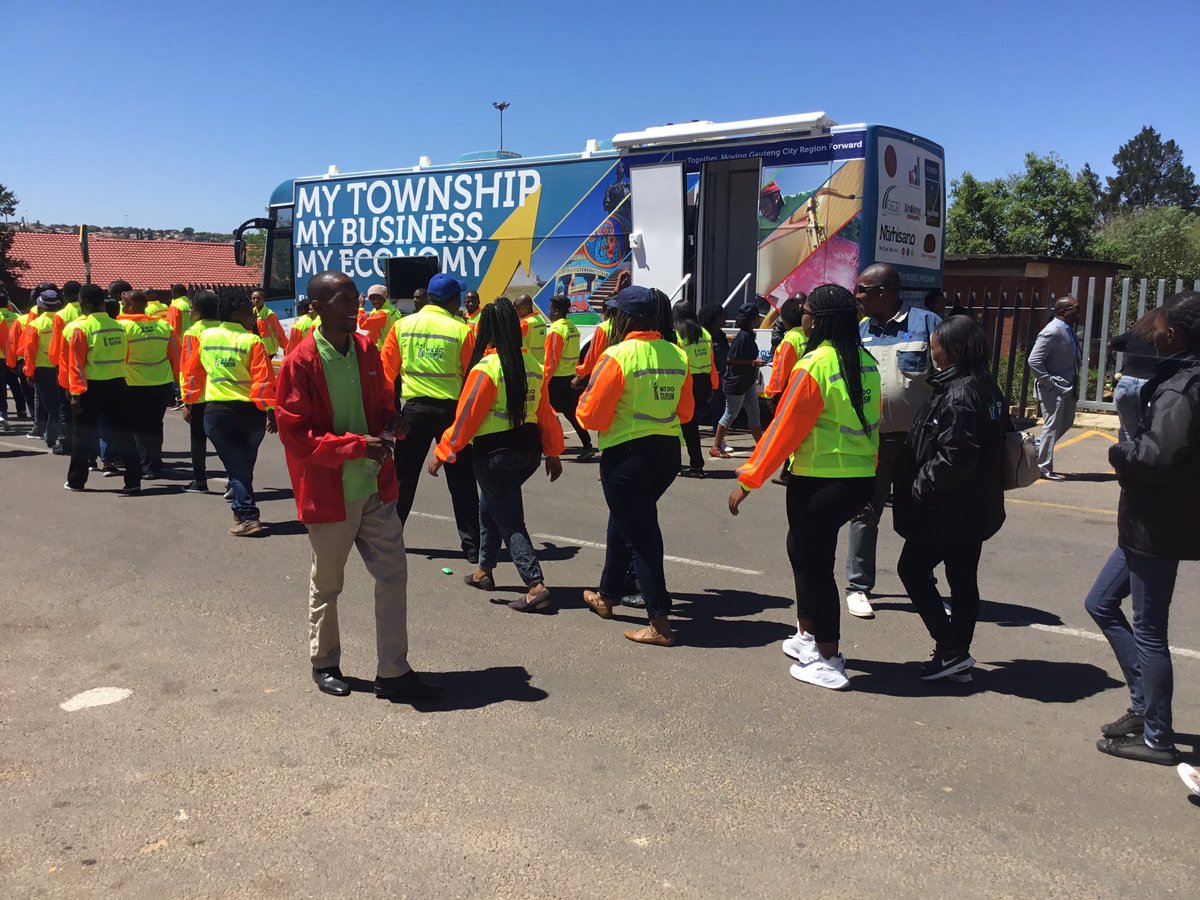 Tourists visiting South Africa can rest assured that they can safely enjoy their holidays, thanks to a R52.7 million Tourism Safety Monitors Programme.
Tourists visiting South Africa can rest assured that they can safely enjoy their holidays, thanks to a R52.7 million Tourism Safety Monitors Programme.
Tourism Minister Tokozile Xasa launched the pilot programme in Gauteng recently. The programme places youth aged 18-35 in tourism hubs like Vilakazi Street in Orlando, Soweto, where they will ensure the safety of tourists.
The programme, which further aims to revive the township tourism economy, will also be rolled out to other provinces.
One of the East Rand Monitors, Ruben Tsime said the programme will be very beneficial to him.
“Before I was selected, I was volunteering but it was not working out, now I am employed because of this programme. The programme runs for three years and during that time we will get skills training.”
The Department of Tourism said the initiative is part of its effort to fulfil the National Development Plan mandate which identified the tourism sector as a key to growing the economy.
A series of crime incidents around tourism hotspots and some directed at tourists threatened the department’s potential to reach its target of increasing tourists to Gauteng by five million.
Minister Xasa expressed the importance of increasing visibility around the hotspots to ensure that their targets are met, adding that South African Tourism must filter information to the man on the street.
The monitors will be linked to law enforcement agencies to allow seamless flow of information and engagement.
“The aim of the monitors is to create access to information, ensure safety in destinations while giving tourists quality services and experiences,” Minister Xasa said.
Recruiting of monitors
Recruitment for the monitors started in June 2017. The criteria included youth with matric, good communication skills, ability to speak English and two African Languages, prepared to work shifts; and with no criminal record.
All recruited Tourism Monitors will be placed mostly in areas in which they reside. The placement areas are as follows:
- Sedibeng – 35 monitors;
- Johannesburg area (Vilakazi Street, Carlton Centre, Park Station and Red Bus) – 60 monitors and an additional 40 monitors which will be paid for by Johannesburg;
- Ekurhuleni – 35 monitors of which 10 will be place at the OR Tambo International Airport;
- Tshwane – 35 monitors; and
- West Rand – 35 monitors.
While monitors will act as ambassadors, the Minister urged that they assist in developing a database of upcoming Small Medium and Micro Enterprise (SMMEs) Businesses in their areas of placement.
Monitors will also need to identify links in the value chain that may need improvement such as points for transportation in between the various attractions and traffic congestion points.
Domestic Tourists
The department said while it is targeting four million international tourists, it also wants to increase domestic tourism by one million in Gauteng.
“We all do tourism in very different ways, many people see it as an experience that is about travelling to foreign places but you can’t experience things elsewhere if you don’t start at home. We are encouraging people to start at home,” the department’s Deputy Director General Shamilla Chettiar said.
Developing the domestic tourism is seen as a way to address challenges such as seasonality, where there are dips in tourist numbers.
Tourism and the economy
Tourism is a significant and critical sector in South Africa’s economy as it contributes to trade, sustains 700 000 direct jobs and is performing stronger than the other growth sectors. Despite the economic slow-down the country had recorded its 7th year of sustained growth in tourism.
Communities benefit from OR Tambo projects
Communities benefit from OR Tambo projects lebangResidents in OR Tambo’s home village of Nkantolo in the Eastern Cape have much to celebrate as the late stalwart’s centenary year has brought about positive developments.
The provincial Department of Human Settlement has rolled out a housing project of 1 000 houses, with 500 of those houses completed in Nkantolo where the longest-serving ANC President OR Tambo was born.
Born on 27 October 1917, OR, as he was fondly known, would have turned 100 years this year. He, however, died on 24 April 1993 after suffering a stroke at the age of 75. Tambo died one year before the 1994 general elections in which Nelson Mandela became President of South Africa.
Government has declared this year as ‘The Year of Oliver Reginald Tambo’.
As the chair of the Inter-Ministerial Committee (IMC) on the OR Tambo centenary celebrations, Minister Radebe said throughout the year, the Eastern Cape government has worked very hard in its implementation of key OR Tambo legacy projects in the area of Mbizana and Nkantolo.
“Out of the remaining 500 houses for Silangwe village, 100 houses have been built, while construction of the remaining 400 houses will be completed by the end of the current financial year.
“[A total of] 1 000 households have been connected to date and the breakdown is as follows: 300 households for Empetsheni village, Ludeke 200, Qungebe 26, Jama village 224, KwaMpisi 250,” Minister Radebe said during a briefing on milstones reached on the road towards the celebration of OR Tambo’s birthday.
In addition, the provincial Department of Roads and Public Works has upgraded and completed a 13 kilometre stretch of road from Ludeke to Nkantolo.
“The construction of Ludeke dam has been completed. An amount of R100 million has been approved by the Department of Water and Sanitation for secondary bulk infrastructure and this will enable the water reticulation from the dam to benefit people in Alfred Nzo District Municipality and Mbizana Local Municipality and most importantly, Nkantolo village in Ward 04,” Minister Radebe said.
The construction of Nkantolo Multi-Purpose Community Centre is currently underway and the projected completion timeline is 31 March 2018.
Processes are in place to accelerate the refurbishment of the OR Tambo garden of remembrance.
SA, Zimbabwe sign more agreements
SA, Zimbabwe sign more agreements lebangInternational Relations/Africa News
South Africa and Zimbabwe have signed several agreements, which will further improve relations between the two countries.
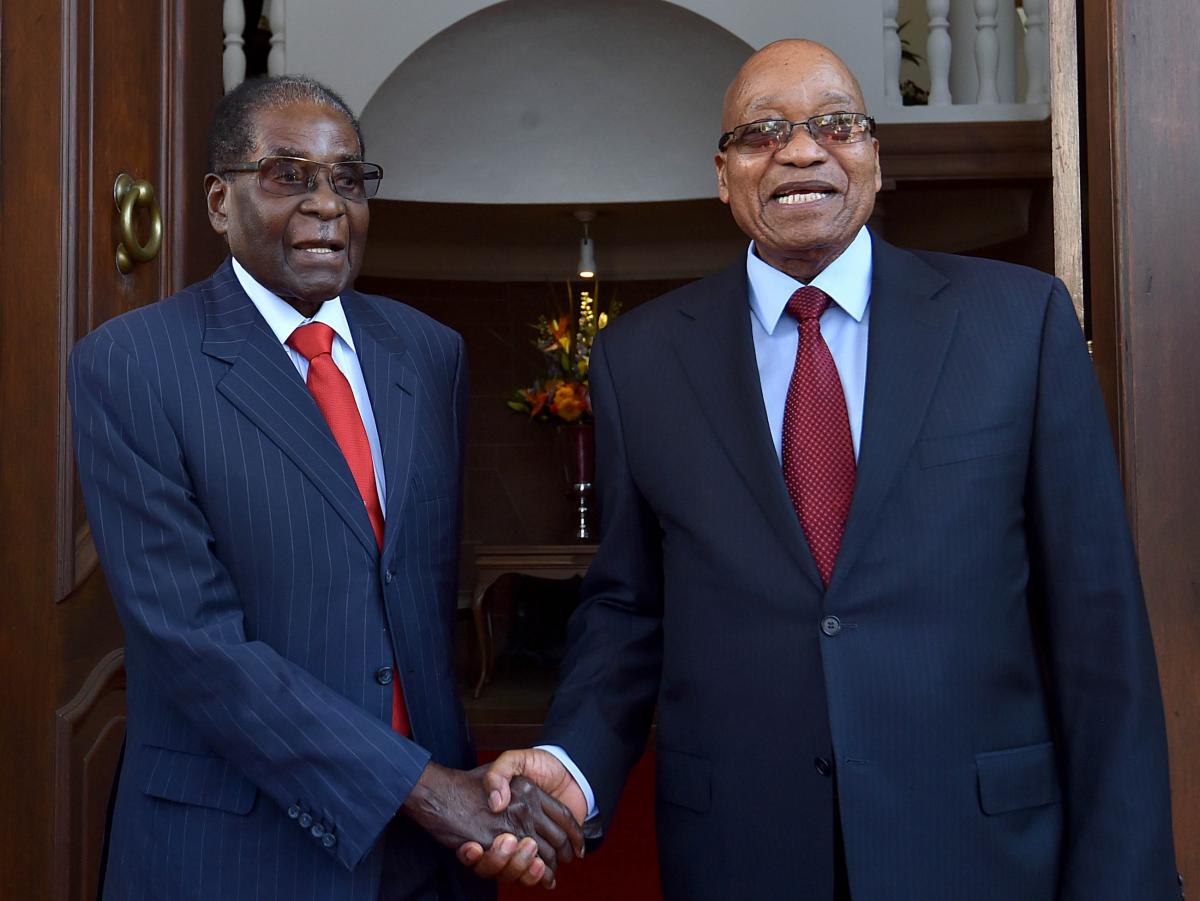 The agreements are in the areas of energy, environment, information communication technologies and sports and recreation.
The agreements are in the areas of energy, environment, information communication technologies and sports and recreation.
They were signed during the second session of the Bi-National Commission (BNC), co-chaired by President Jacob Zuma and President Robert Mugabe in Tshwane recently.
These new agreements are an addition to the 40 bilateral agreements and memoranda of understanding (MoU) between the two countries.
In a communique issued after the bilateral talks, the two presidents directed that these agreements be fully implemented, while outstanding ones should be finalised.
The BNC also saw the establishment of a Joint Technical Committee whose mandate, among other things, will be to develop the necessary legal framework for the establishment of the One-Stop Border Post (OSBP) at Beitbridge border post.
The two heads of state reaffirmed the strategic importance of the project – at the busiest road border post in Africa - and directed the relevant ministers to fast-track the project.
The two countries stand to benefit immensely from the smooth movement of people and goods, harmonised processes and improved infrastructure, which will come with the introduction of this project.
They also committed to use their bilateral relations to push for the economic emancipation of the people. In order to achieve this, President Zuma, who was joined by several cabinet ministers, said the focus between the two countries must be on the transformation of the economy.
“The diversification of our economies and industrialisation will ultimately put the region on the right path as the global economy continues to play its own role,” the President said.
The two heads of state reiterated their commitment to improving and strengthening the economic relations between the two countries by facilitating trade and removing impediments constraining bilateral trade and investments.
President Mugabe said he was happy to join hands with South Africa to ensure this transformation.
“This strategic partnership is an instrument for achieving the profound transformation of our countries’ economies, so let us join hands.”
Regional political stability
The heads of state also discussed regional and international issues of mutual concern, reaffirming their commitment to working together in pursuit of sustainable peace, stability, and economic development.
Regarding the region, they particularly discussed the political and security situation in Lesotho and the Democratic Republic of Congo (DRC), where they urged the two countries to implement the relevant SADC decisions and recommendations.
On policies, the BNC reaffirmed its commitment to the continental integration processes and called for the implementation of the African Union’s Agenda 2063 and its Action Plan.
South Africa and Zimbabwe reaffirmed their support and commitment to Agenda 2030 for Sustainable Development, adopted by the United Nations in 2015.
The third session of the BNC will be held in Harare in 2018.
South Africa and Zambia strengthen relations
South Africa and Zambia strengthen relations lebangInternational relations
President Jacob Zuma had fruitful official talks with Zambian President Edgar Lungu during his State Visit in Lusaka recently.
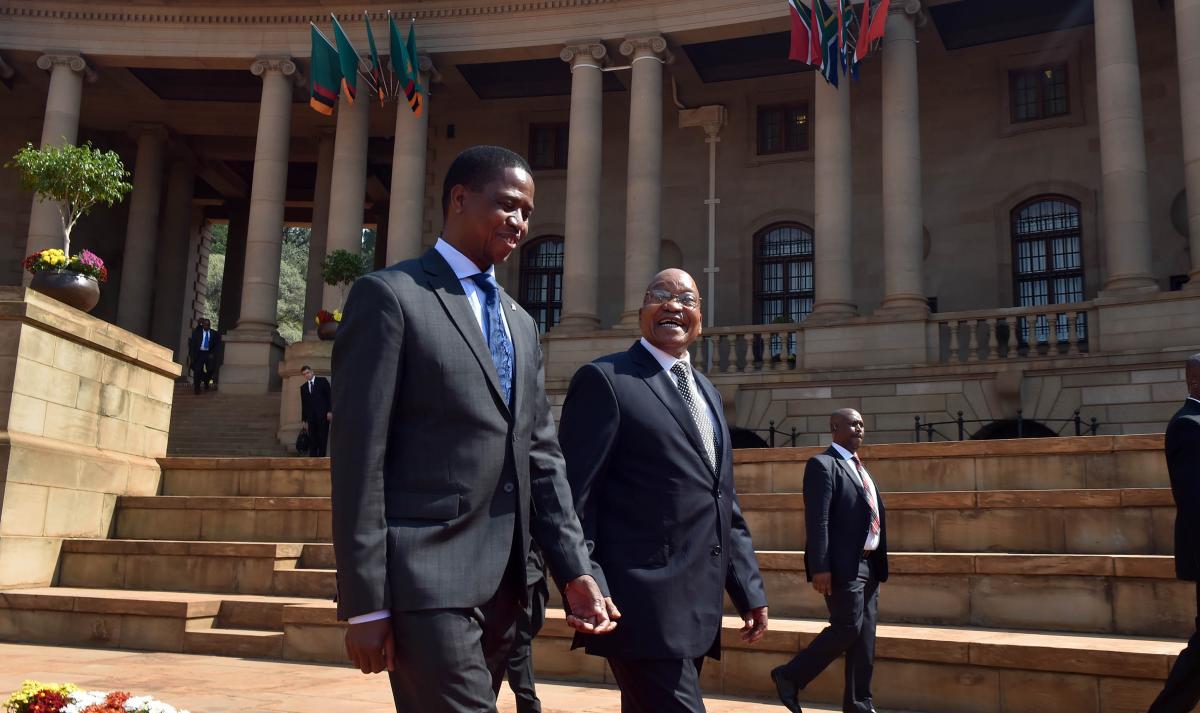 The visitprovided a platform for both President Zuma and President Lungu to deliberate on various issues of mutual concern as well as to deepen and strengthen bilateral, political, economic and cultural relations between the two countries.
The visitprovided a platform for both President Zuma and President Lungu to deliberate on various issues of mutual concern as well as to deepen and strengthen bilateral, political, economic and cultural relations between the two countries.
“It was an important visit for South Africa as our aim was to review and strengthen the existing strong bilateral and economic relations between the two nations and we are all pleased with the outcomes of our talks,” said President Zuma.
The most important highlight of the visit was the elevation of the structured bilateral mechanism between South Africa and Zambia from the Joint Commission for Cooperation to a complete Bi-National Commission (BNC).
The BNC will now be chaired by the two Heads of State.
President Zuma said the BNC would ensure that the two countries meet annually at the level of Heads of State.
“We believe that this would put the required impetus to the implementation of agreements.
“We have also over the years seen progressive expansion and deepening of our bilateral cooperation. To date, we have concluded over 20 agreements and Memoranda of Understanding covering a wide range of areas,” said President Zuma.
He said the visit had also provided an opportunity to discuss and agree on various issues, particularly economic cooperation in priority sectors such as agriculture and agro-processing, mining and mineral beneficiation, energy, ICT connectivity, tourism, arts and culture, as well as the establishment of related industries and supportive infrastructure development.
The two Heads of State also discussed peace and security issues on the continent, particularly in the SADC region. They agreed to work together to advance the regional integration agenda, in particular peace and security of the region.
During the visit President Zuma also officially launched the Oliver Tambo National Heritage Site to honour and celebrate the legacy and centenary year of one of South Africa’s most respected humanists, a liberation struggle stalwart and former President of the governing party, Oliver Reginald Tambo.
While exiled from South Africa during the apartheid era, Tambo lived in Zambia from 1965 to 1991.
First Black-owned newspaper is published
First Black-owned newspaper is published lebangMonday, 3 November 1884
The first Black South African newspaper, Imvo Zabantsundu (Opinion of the People), was published by Thanda Press in King William's Town as an independent political newspaper for Black people. Its first editor was Tengo Jabavu, well-known politician and educationist. The paper survived a banning order during the Second South African war (or Second Anglo-Boer War) from August 1901 until 1902. Imvo was discontinued in 1998.
Source: sahistory.org
New library for the community of Boekenhouthoek
New library for the community of Boekenhouthoek lebangSport, arts and culture
The opening of Zithabiseni Public Library in Boekenhouthoek in Mpumalanga will go a long way towards improving reading in the community.
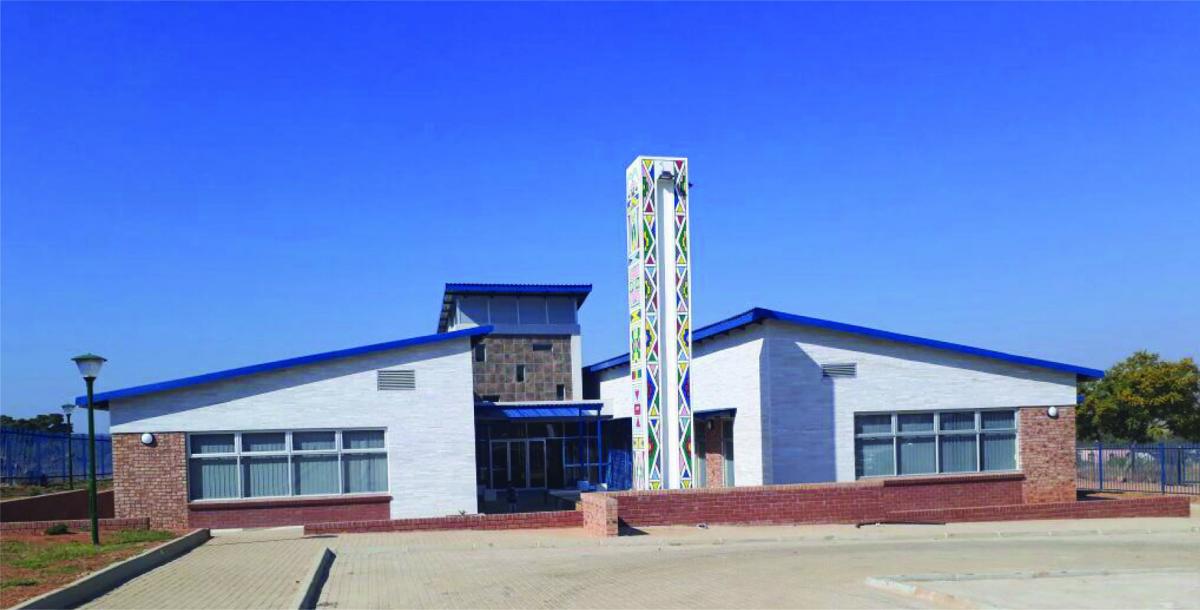 The Zithabiseni Public Library, recently opened by Mpumalanga Culture, Sport and Recreation MEC Norah Mahlangu, is expected to change the face of the Boeken-houthoek community.
The Zithabiseni Public Library, recently opened by Mpumalanga Culture, Sport and Recreation MEC Norah Mahlangu, is expected to change the face of the Boeken-houthoek community.
The state-of-the-art library has a study area, media room used for watching educational materials, and a play area for children which will be utilised by children and teachers for storytelling and play activities.
There is also a computer room with internet and wifi access. MEC Mahlangu urged the community to look after the library and to use it to improve their lives.
The library has 5 506 books and other resources. Books are issued to community members who are registered as library members and they can borrow a maximum of four books for 14 days. The library will service six high schools, eight primary schools and 10 pre-schools within the Bomandu community, which is made up of three wards.
MEC Mahlangu set aside R30 million for building new libraries in the province. The department also budgeted R10 million to upgrade two libraries, in Mashishing and Standerton. It will also maintain seven libraries. She said her department would be providing 25 000 books to public libraries across the province. Included will be books that accurately capture South Africa’s history.
She added that her department is committed to rendering quality services to people with disabilities through libraries for the blind, which are incorporated into existing libraries. Fourteen libraries in the province will provide the following services:
- Daisy Player (CD) – This caters for both literate and illiterate people, who are able to listen to audio books.
- Document Reader – These transcribe printed matter into speech.
- A library designed specifically for blind users.
Operating hours are from Mondays to Fridays from 08:00 to 16:00 and access to the library is free to the community.
Heritage projects get a boost
Heritage projects get a boost lebangSport, arts and culture
A statutory body falling under the Department of Arts and Culture, the National Heritage Council’s vision is to build a nation proud of its African heritage.
If you have a heritage project that promotes nation building and South Africa’s national identity, you may qualify for funding from the National Heritage Council (NHC).
As well as funding projects that make heritage a socio-economic resource, the NHC plays an important role in raising public awareness and knowledge of heritage subjects, especially those that were previously neglected.
Its mission is to transform, protect and promote South African heritage for sustainable development. Stella Ndhlazi, programme manager for grant funding, said the NHC makes grants available to any person, organisation or institution committed to promoting and developing national heritage activities and resources.
“We generally support, nurture and develop access to institutions and programmes that promote and bring equity to heritage management.”
Applicants may only make submissions once a year. The 2018 application process opened in November and will close at the end of January 2018.
Ndhlazi said adverts will be placed in both print and electronic media.
One of the programmes funded by the NHC is the South End Museum in the Eastern Cape, which developed a Khoi-San booklet through workshops with the communities and the Khoi-San Clan.
Ndhlazi said NGOs, NPOs, foundations, associations, education institutions, Section 21 not-for-gain companies and heritage practitioners can apply for funding. Organisations that qualify for funding but do not have the necessary compliance documents must be willing to be administered or partner with qualifying
organisations.
Application criteria for funding:
- Applicants must use the NHC application procedures.
- The organisation’s registration certificate.
- The organisation’s constitution.
- Current tax clearance certificate (not a tax exemption certificate).
- Project proposal with an itemised budget.
- A business plan.
- Fully completed declarations forms.
- Certified copies of accountable persons' IDs.
- Audited financial statements of organisations registered for more than one year.
For more information, applicants can visit: www.nhc.org.za or call the NHC on 012 348 1663 between 08:00 and 16:00 on weekdays
Start-up timber company branches into China
Start-up timber company branches into China vuyelwanExporting to China can be an uphill battle for many small and medium-size businesses, but for KwaZulu-Natal businessman Xolani Ntuli it is a winnable battle with the right partners at his side.
Ntuli (40) owns XKG, a timber and logistics company that recently secured a contract to supply timber to a furniture manufacturing company in China.
It was a dream come true for Ntuli who, after working in the timber industry for many years, aspired to be his own boss. In 2015, he took a leap of faith by starting his own business. Within months, he secured a contract to export pine timber to Dongguan, a manufacturing hub in China’s Guangdong province.
Ntuli said winning the contract would not have been possible without the support of Trade and Investment KwaZulu-Natal through its Emerging Exporter Programme. 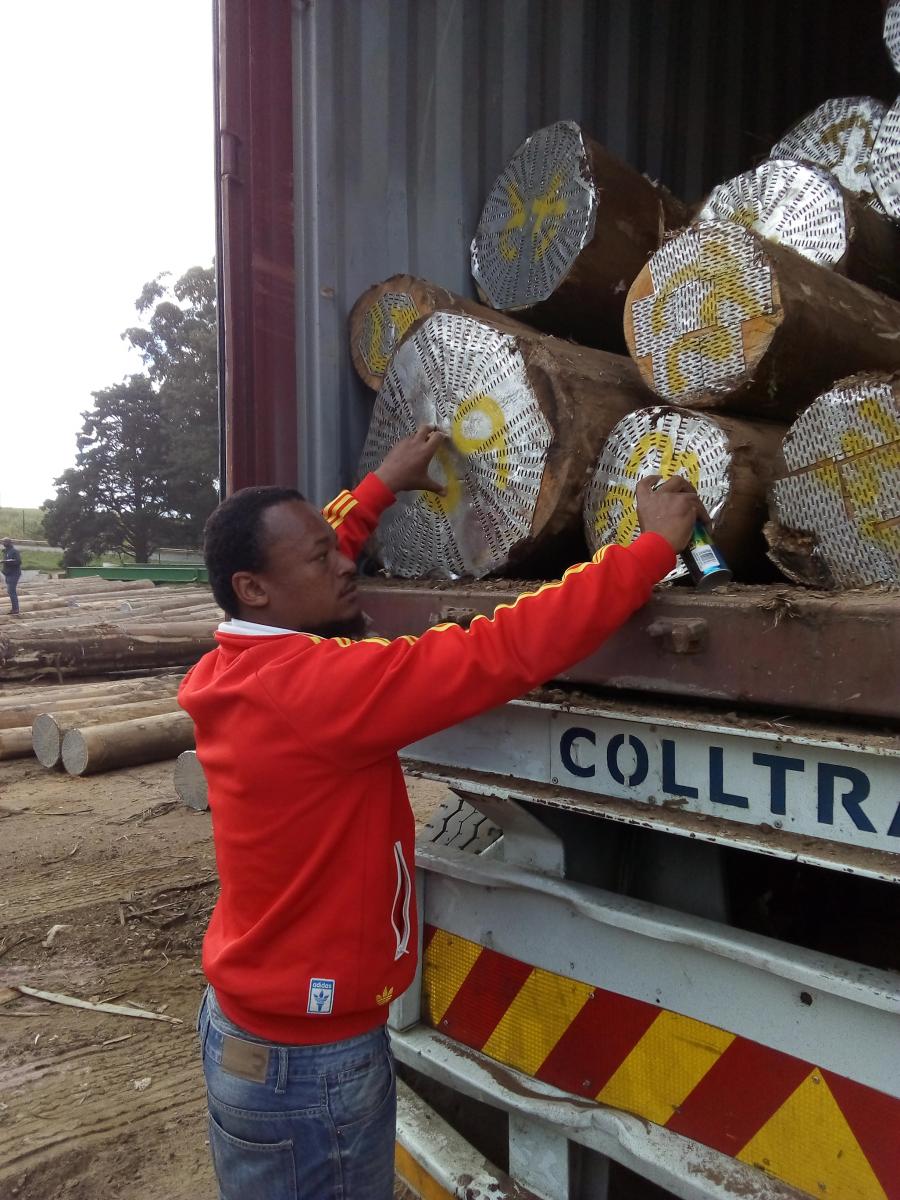
The incubation programme focuses on export and market opportunities. Ntuli received step-by-step mentorship. “They even went with me to the forest to help me choose the right product for my client,” he said.
The first shipment of 10 tons of pine timber was done in June and his clients wanted another eight tons in September.
“The first shipment was a headache because I didn’t have the R500 000 to cover the shipping costs. I had many sleepless nights trying to figure out what to do and eventually used all my savings for my kids to get the job done,” he said.
Ntuli is one of the people who heeded government’s call to consider entrepreneurship as a way of helping the economy to grow. He has employed five young people and plans to open a satellite office in Nelspruit as he gets most of his timber from Mpumalanga.
“I’m a strong believer in outsourcing as a means of supporting other black-owned businesses,” he said, citing the trucks that transport his timber to the port and the machines used to load timber in the forest as examples.
Ntuli had this message for entrepreneurs: Work hard on your dreams and be willing to learn and make sacrifices.